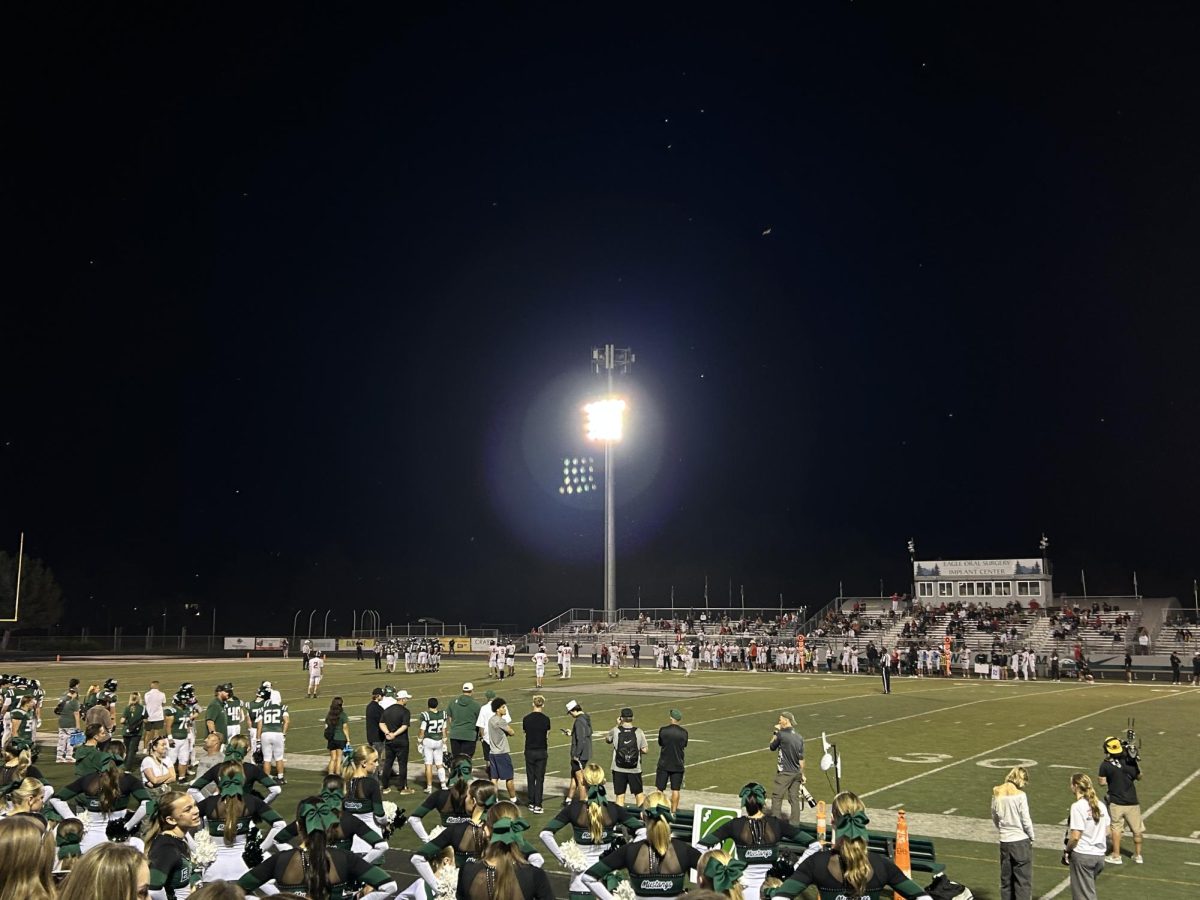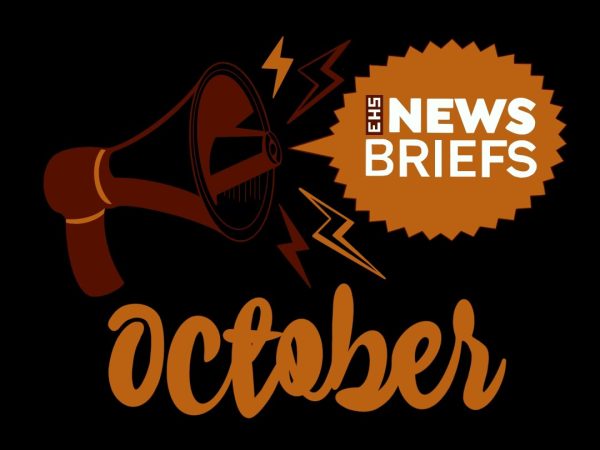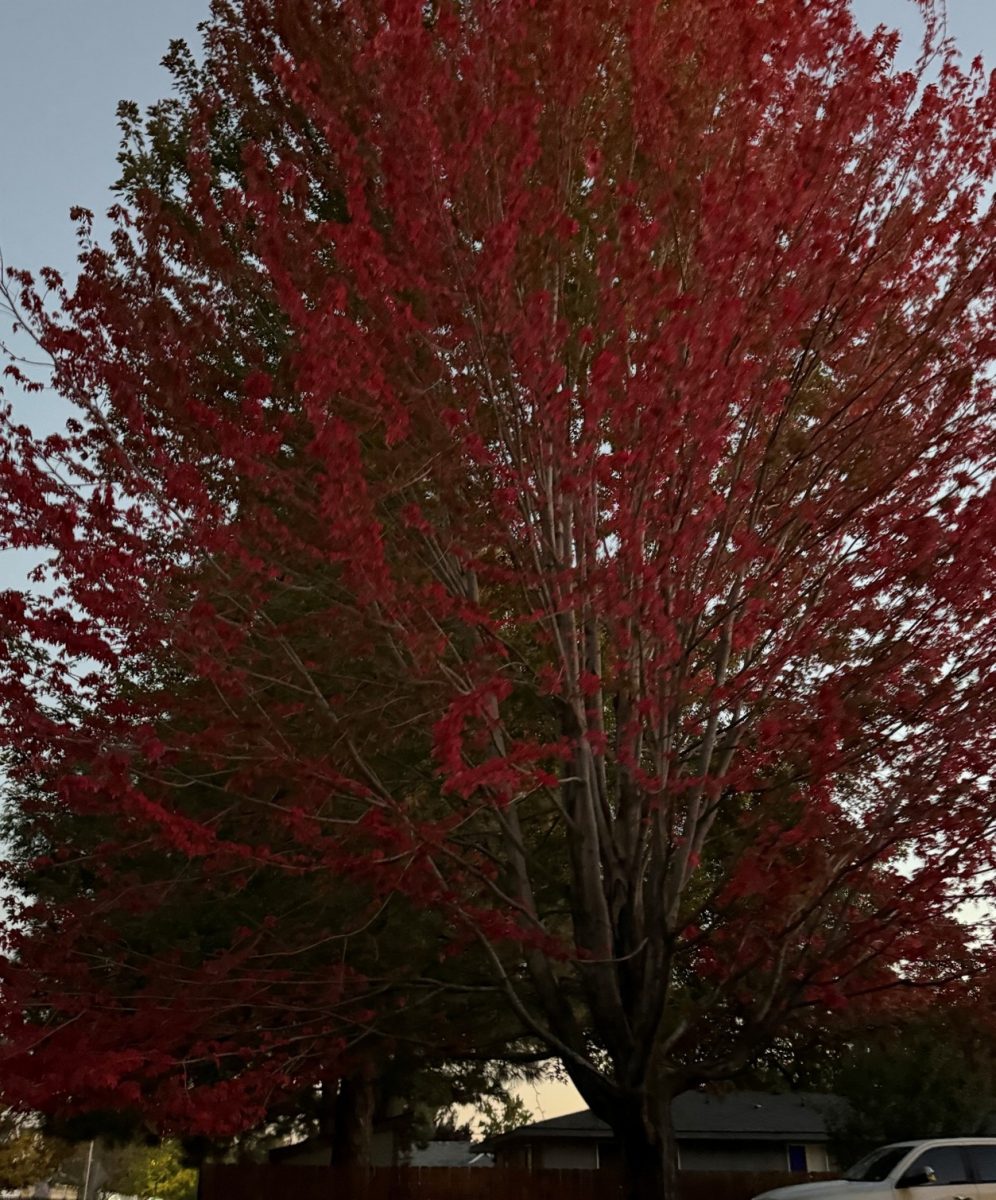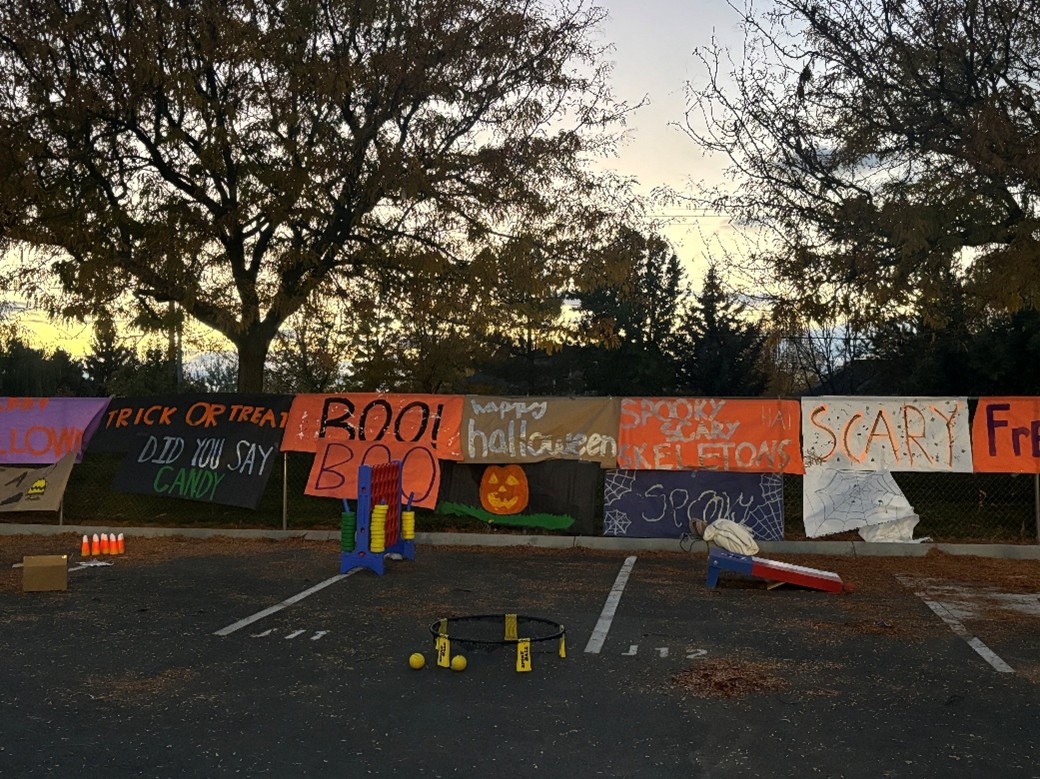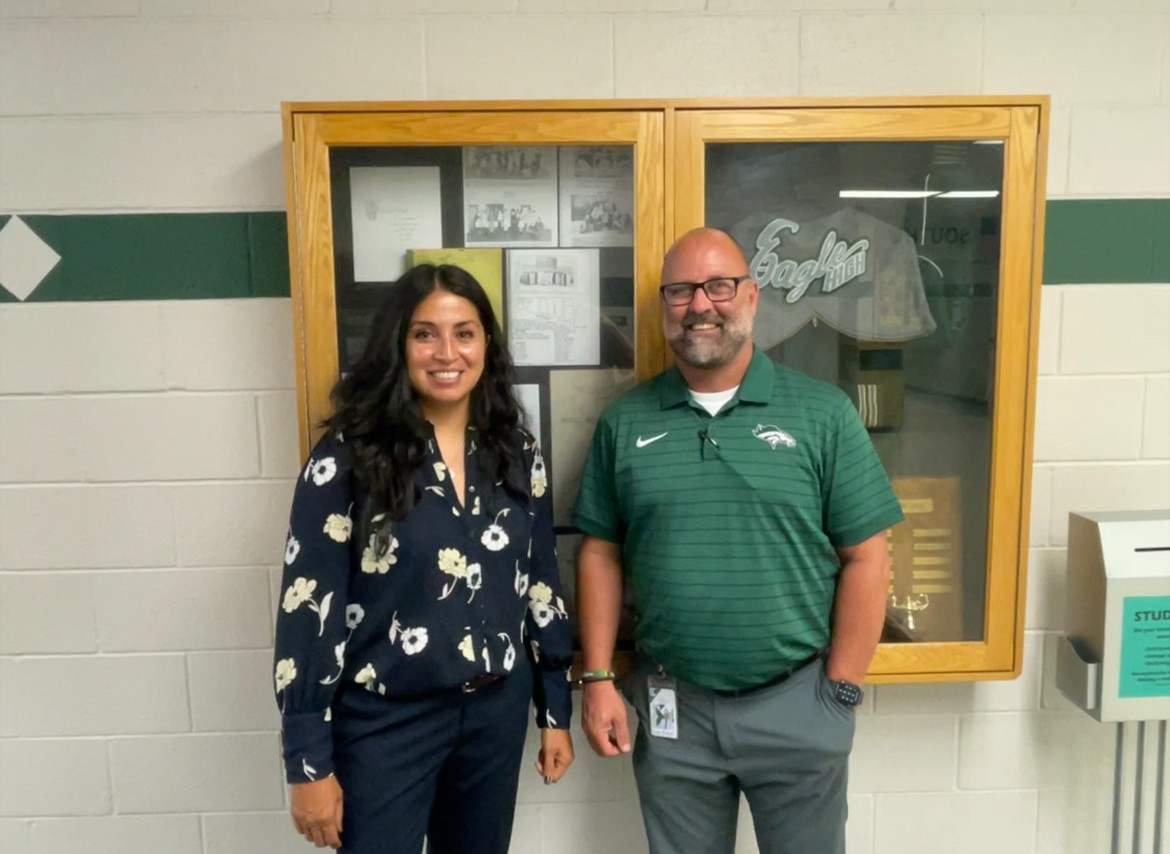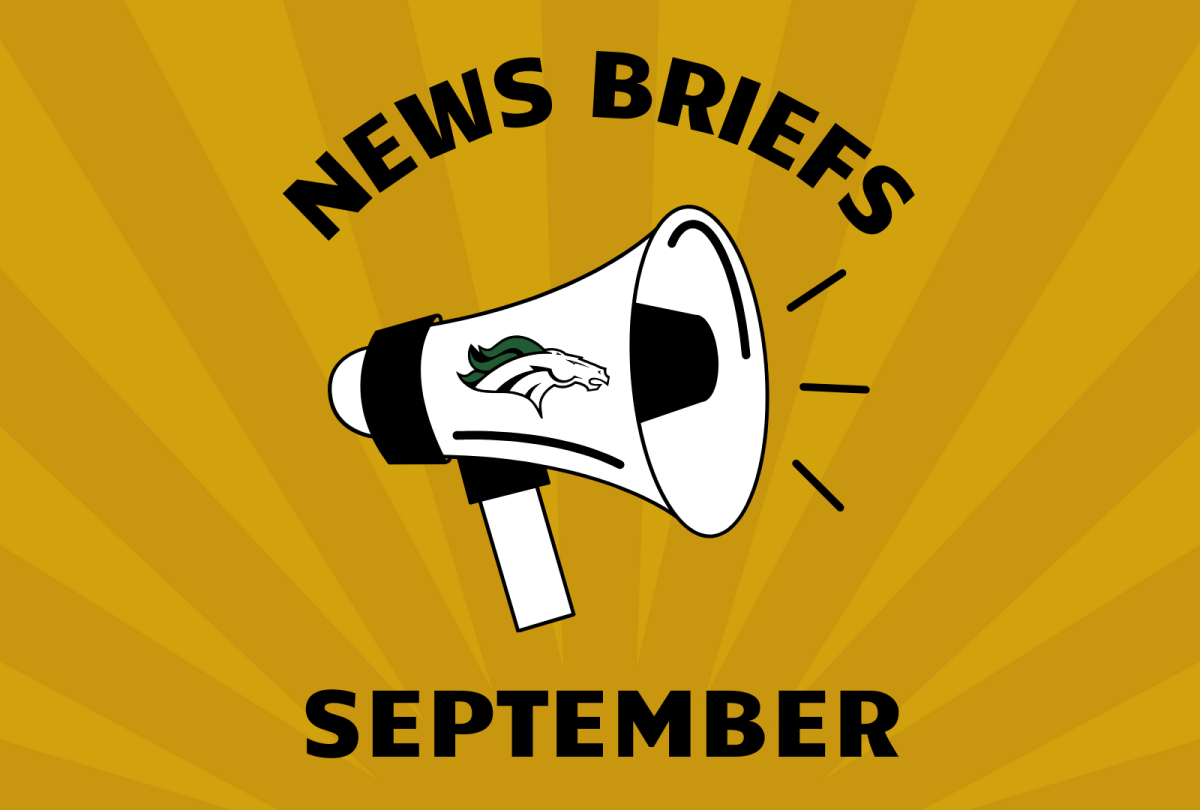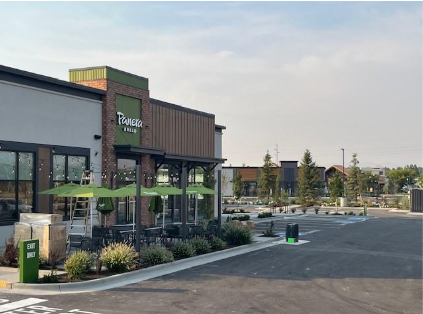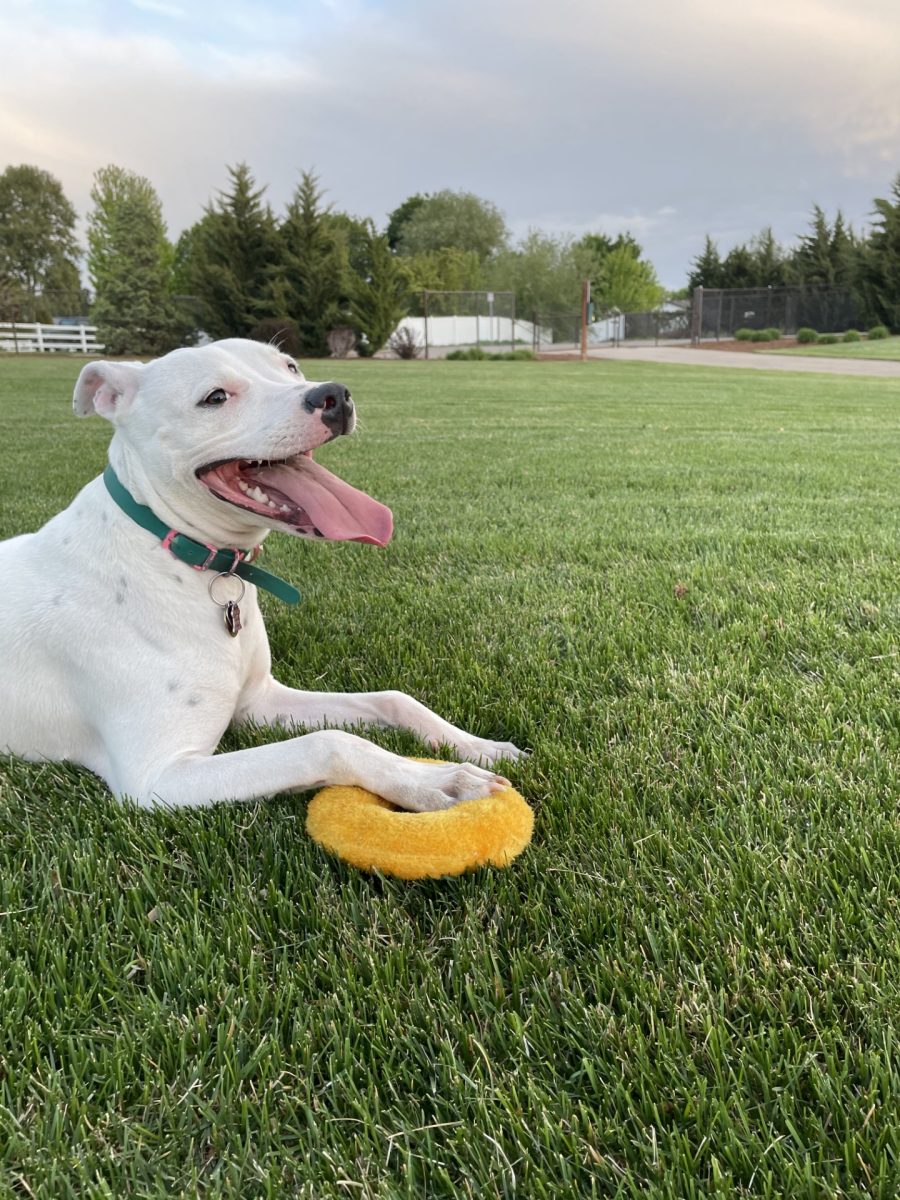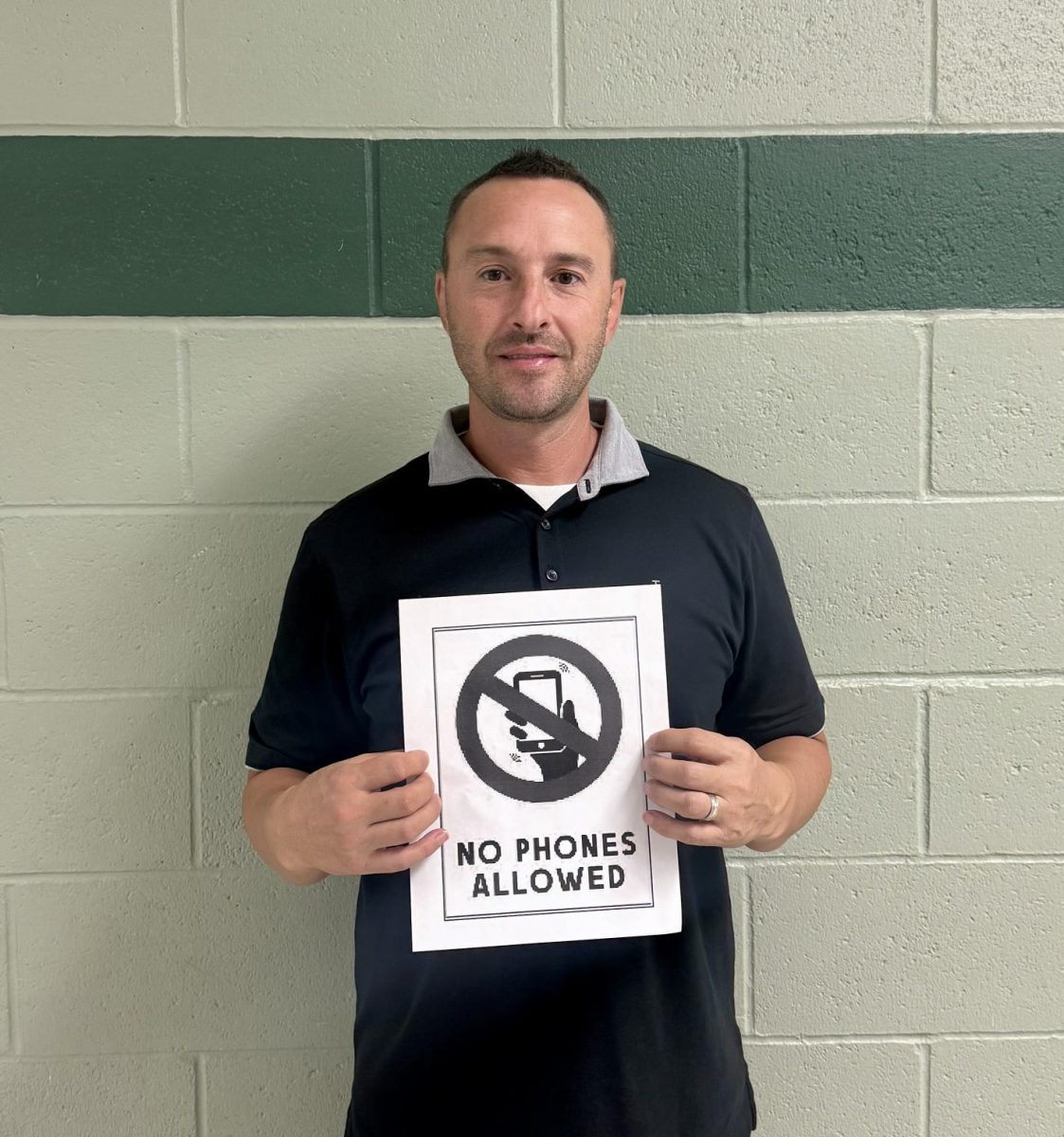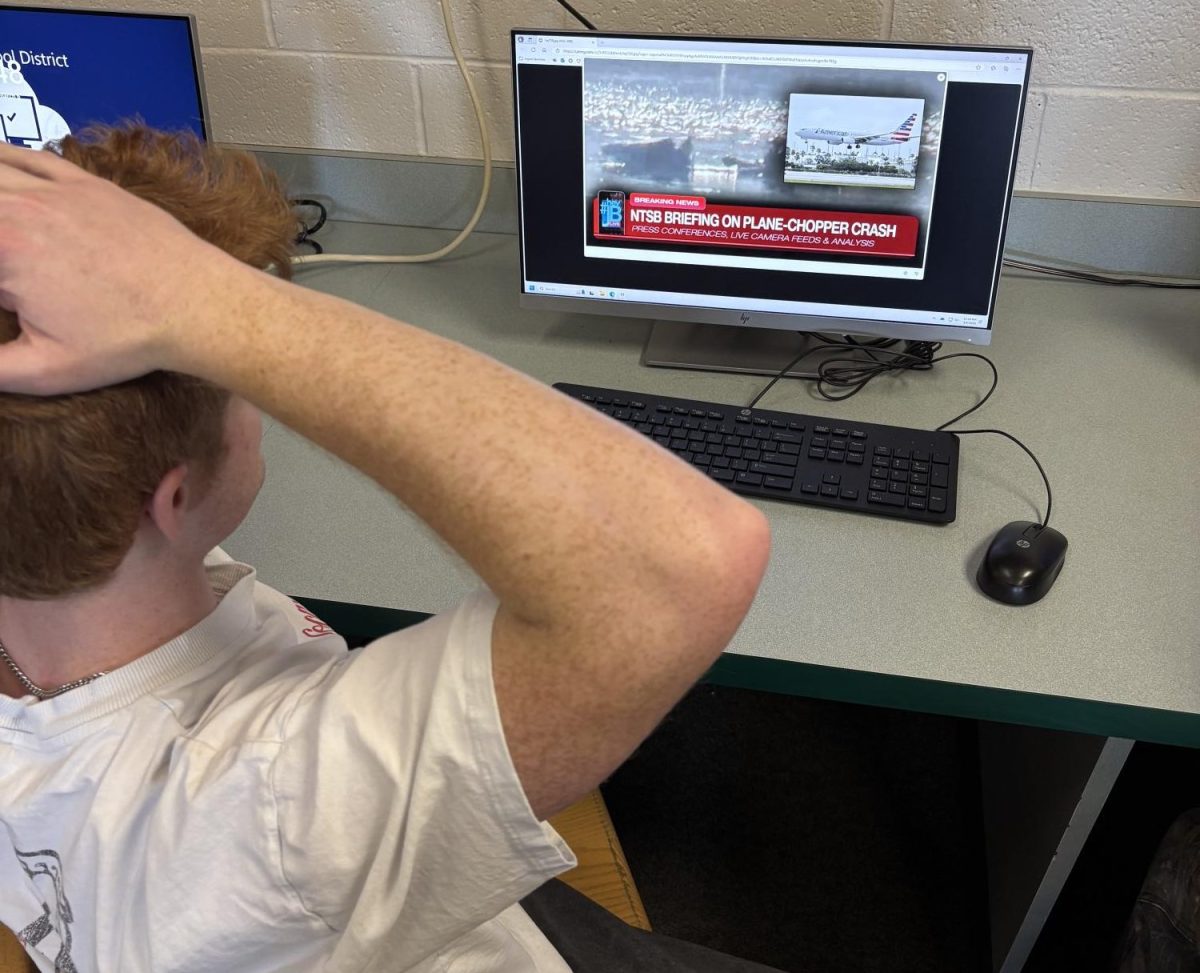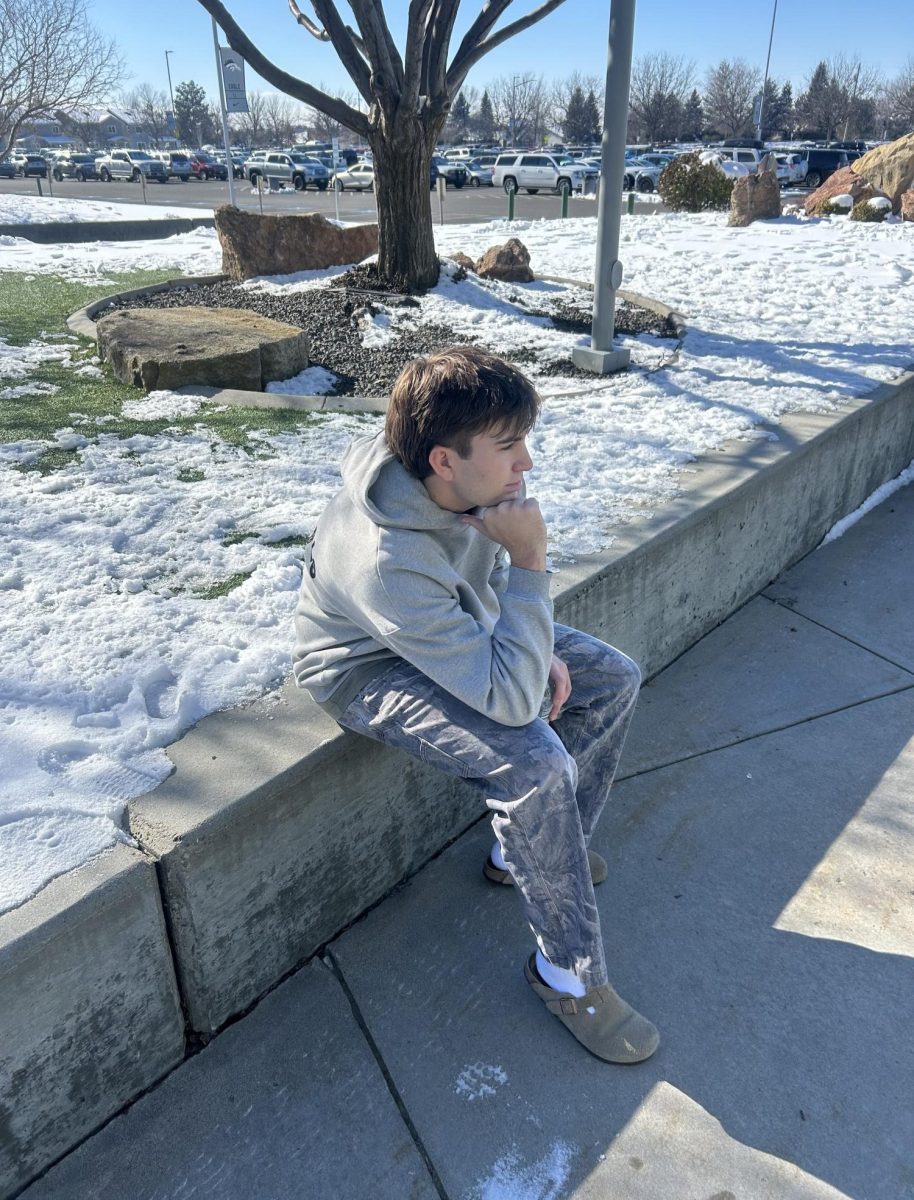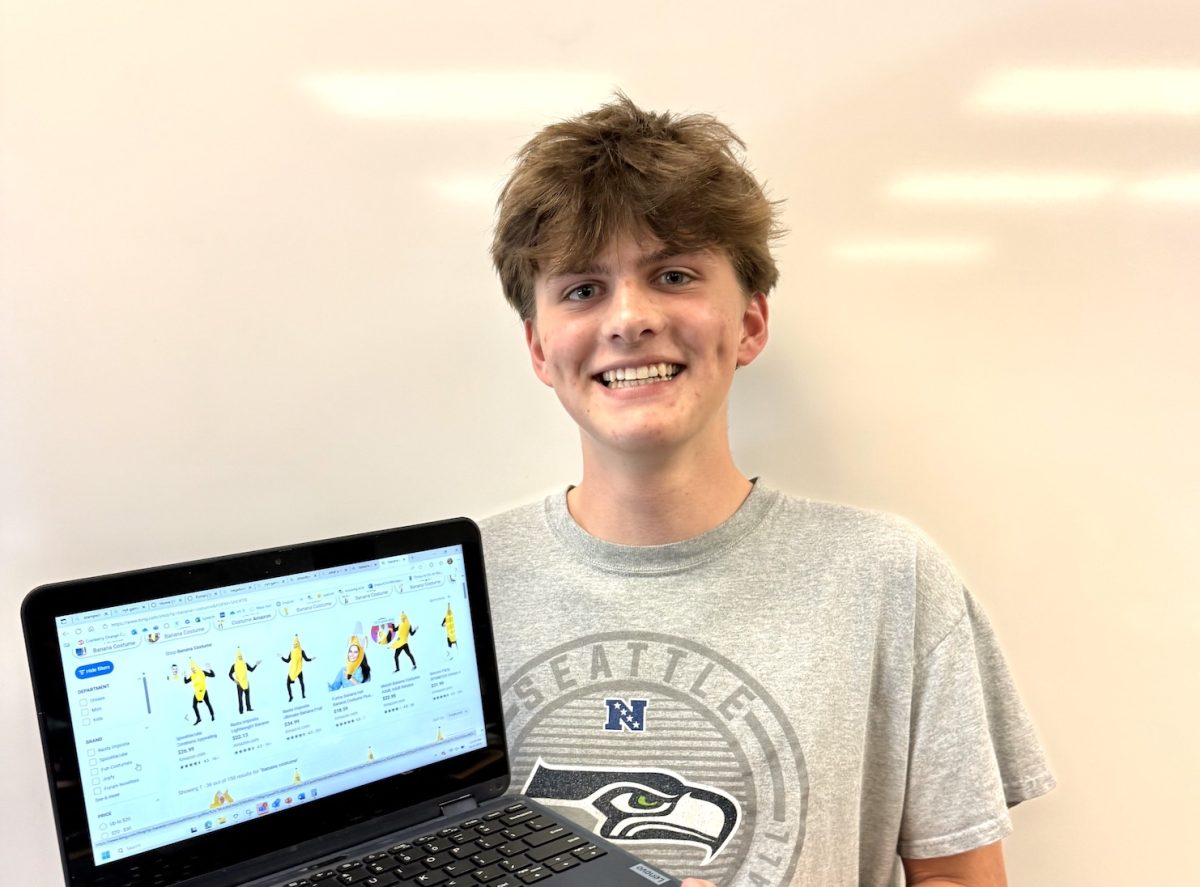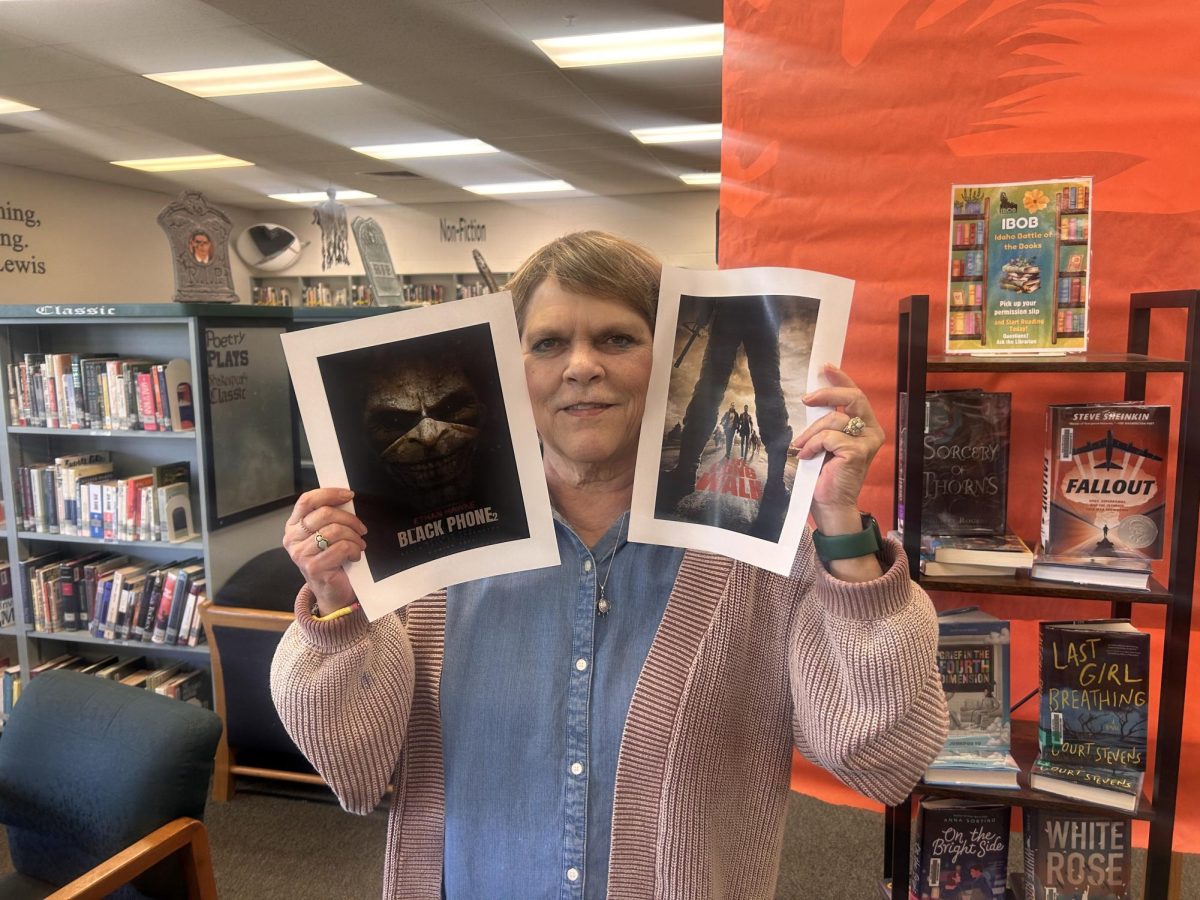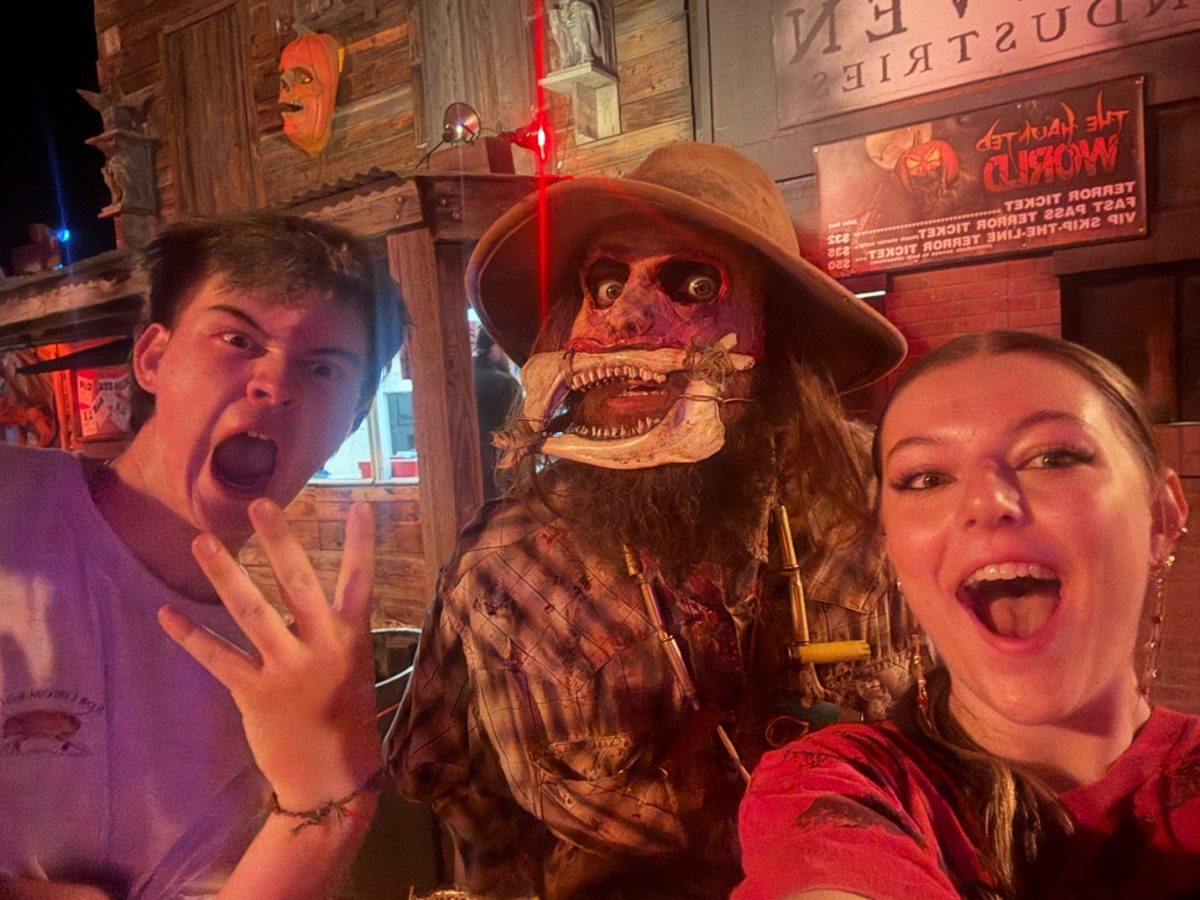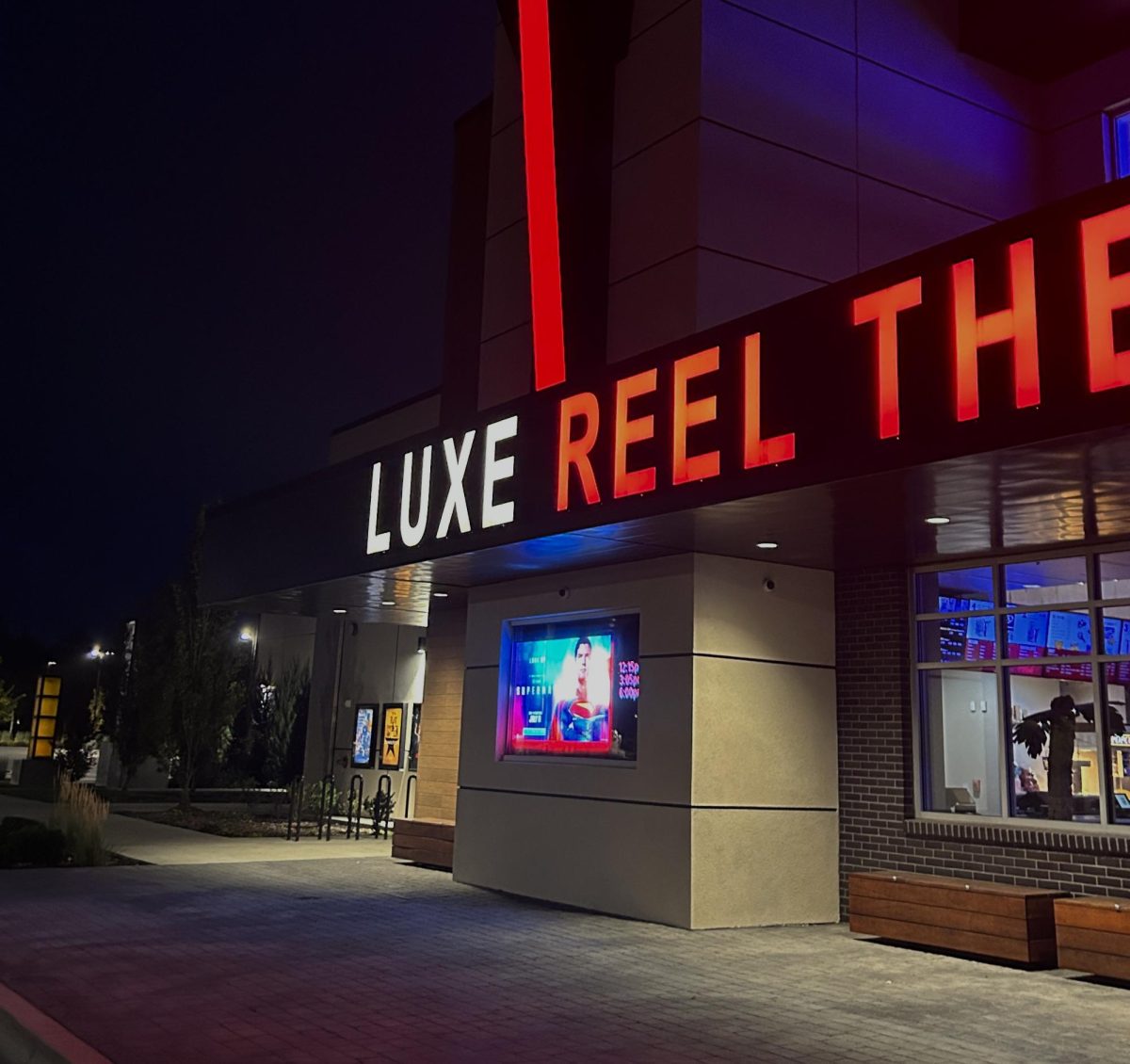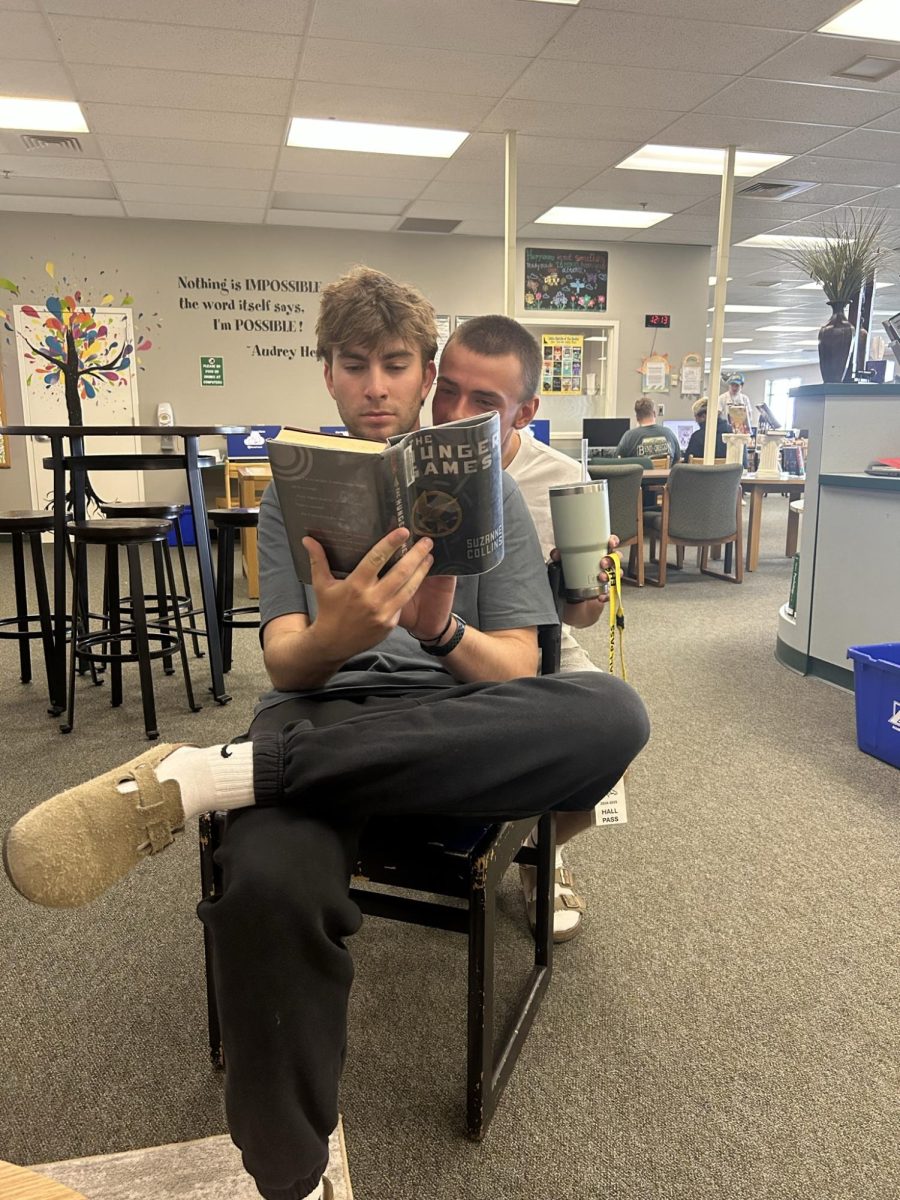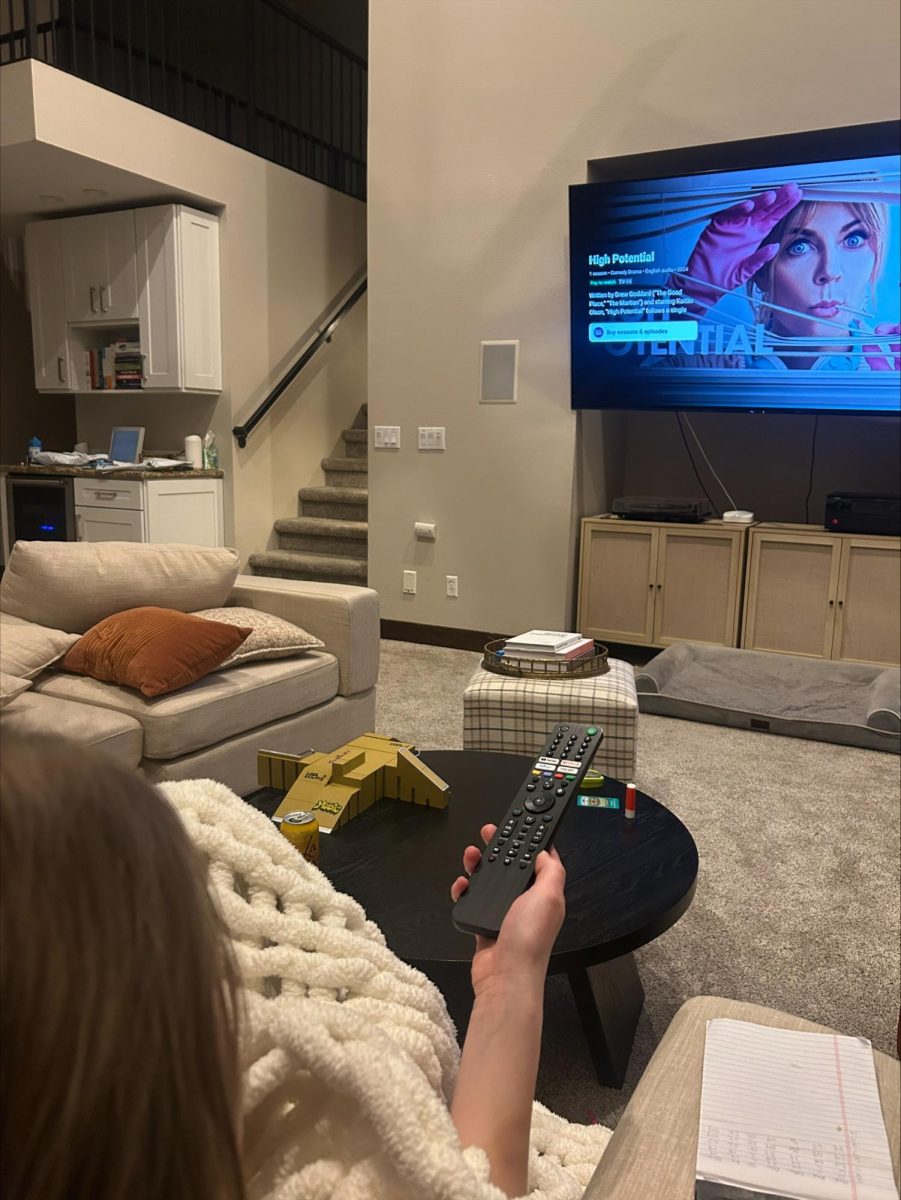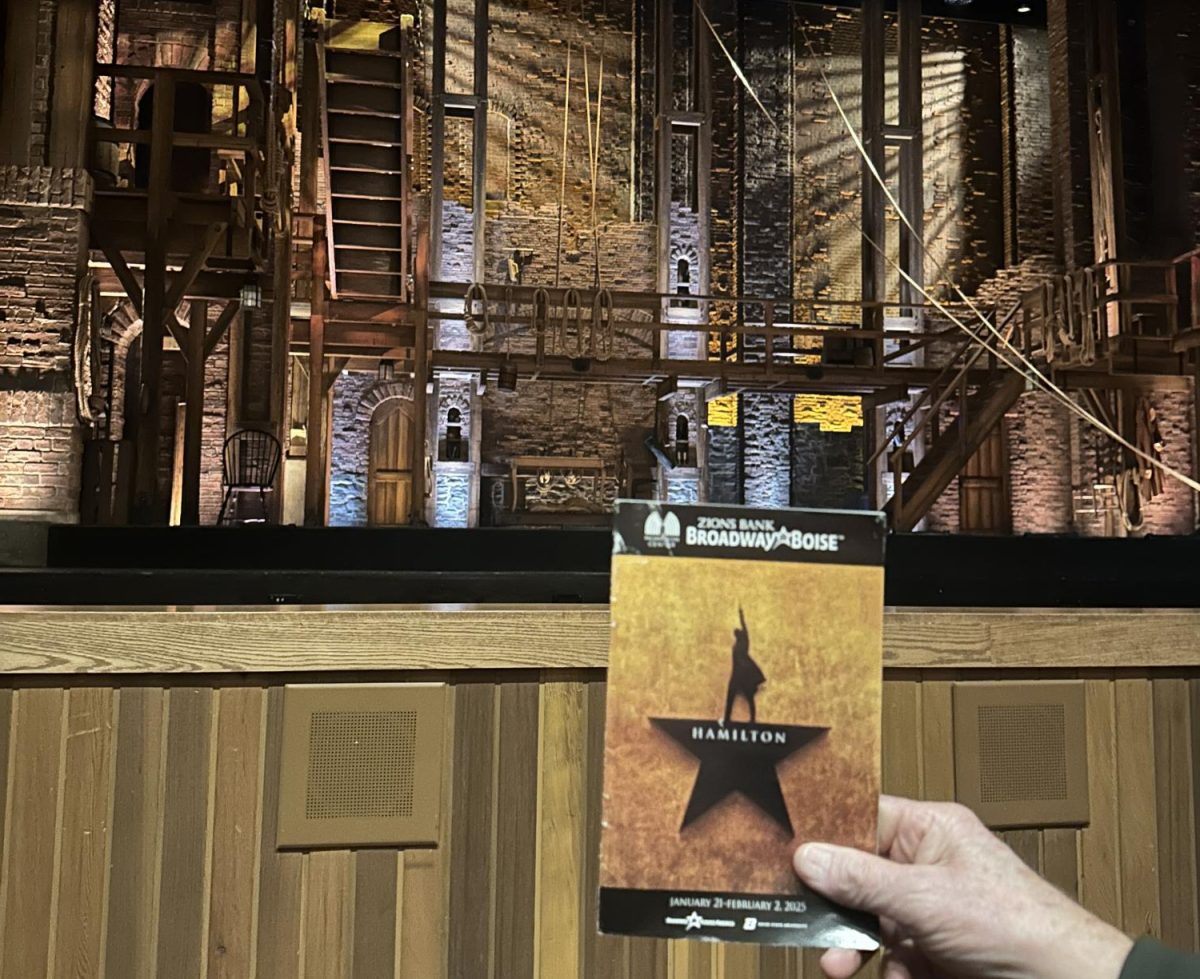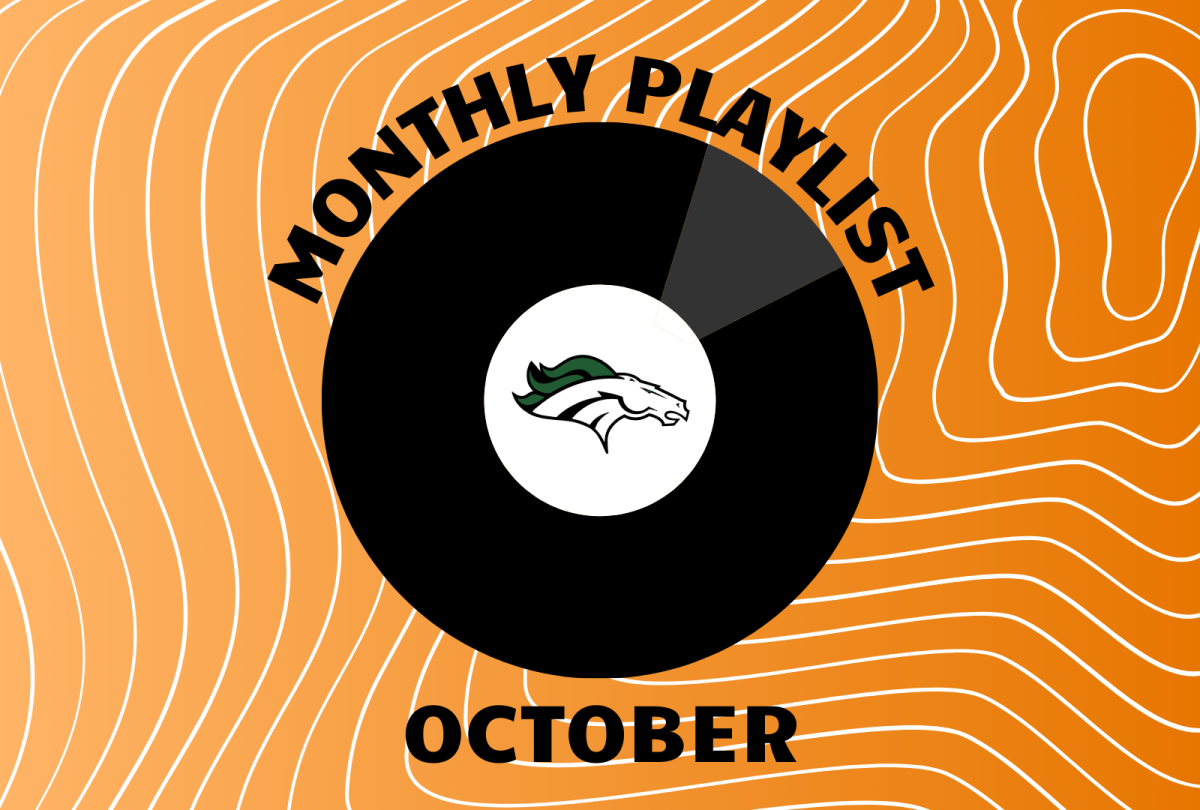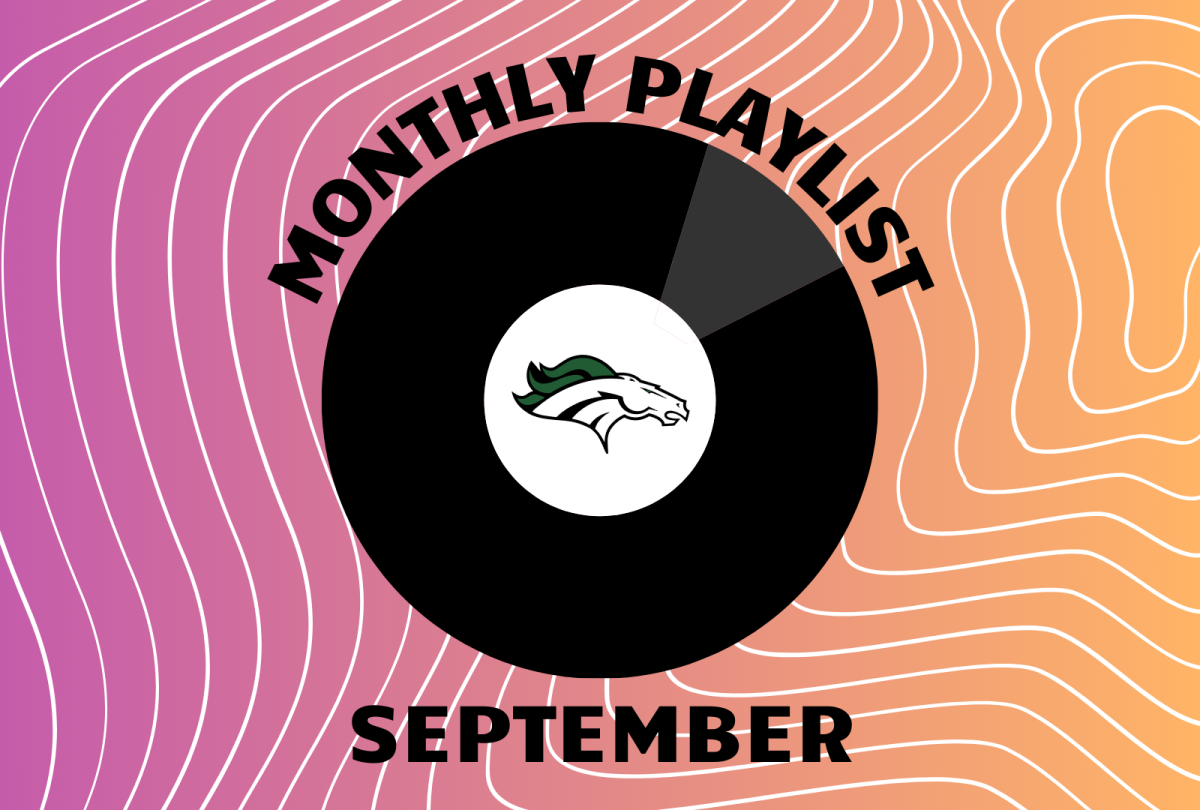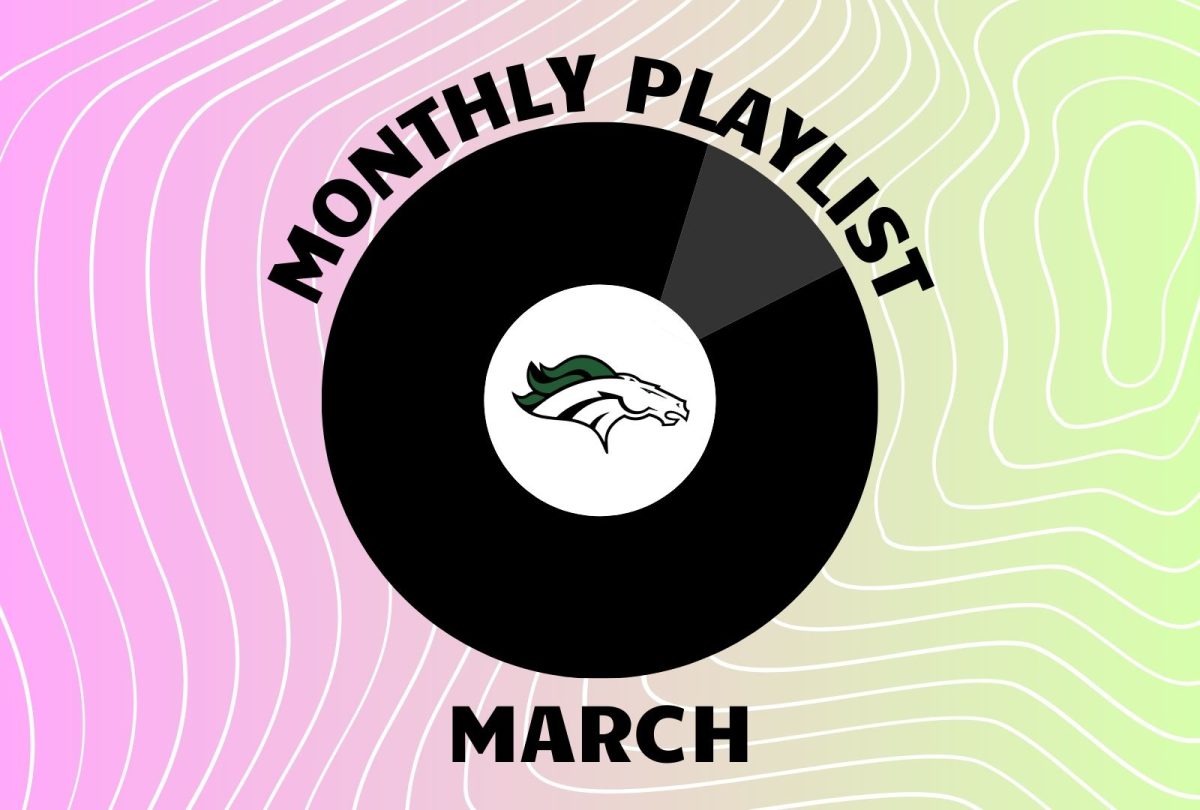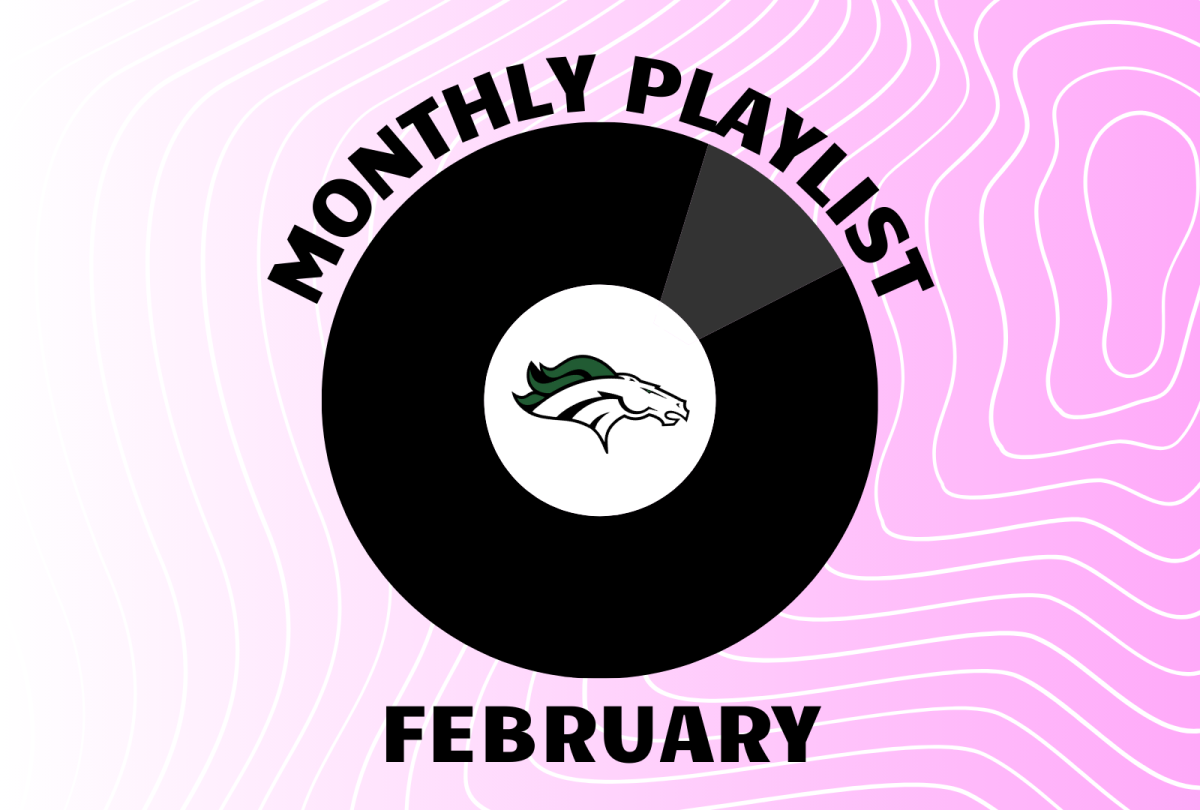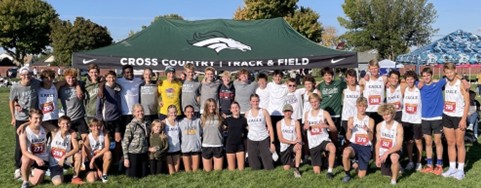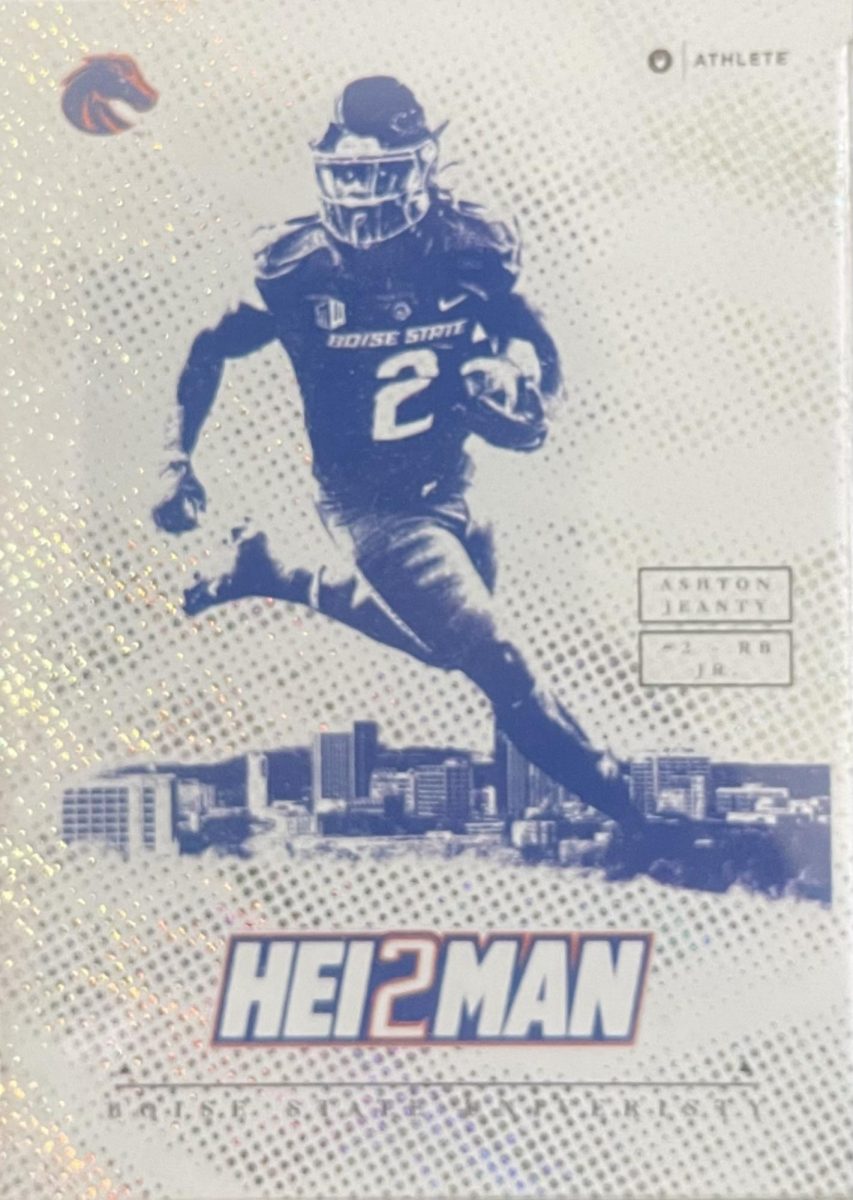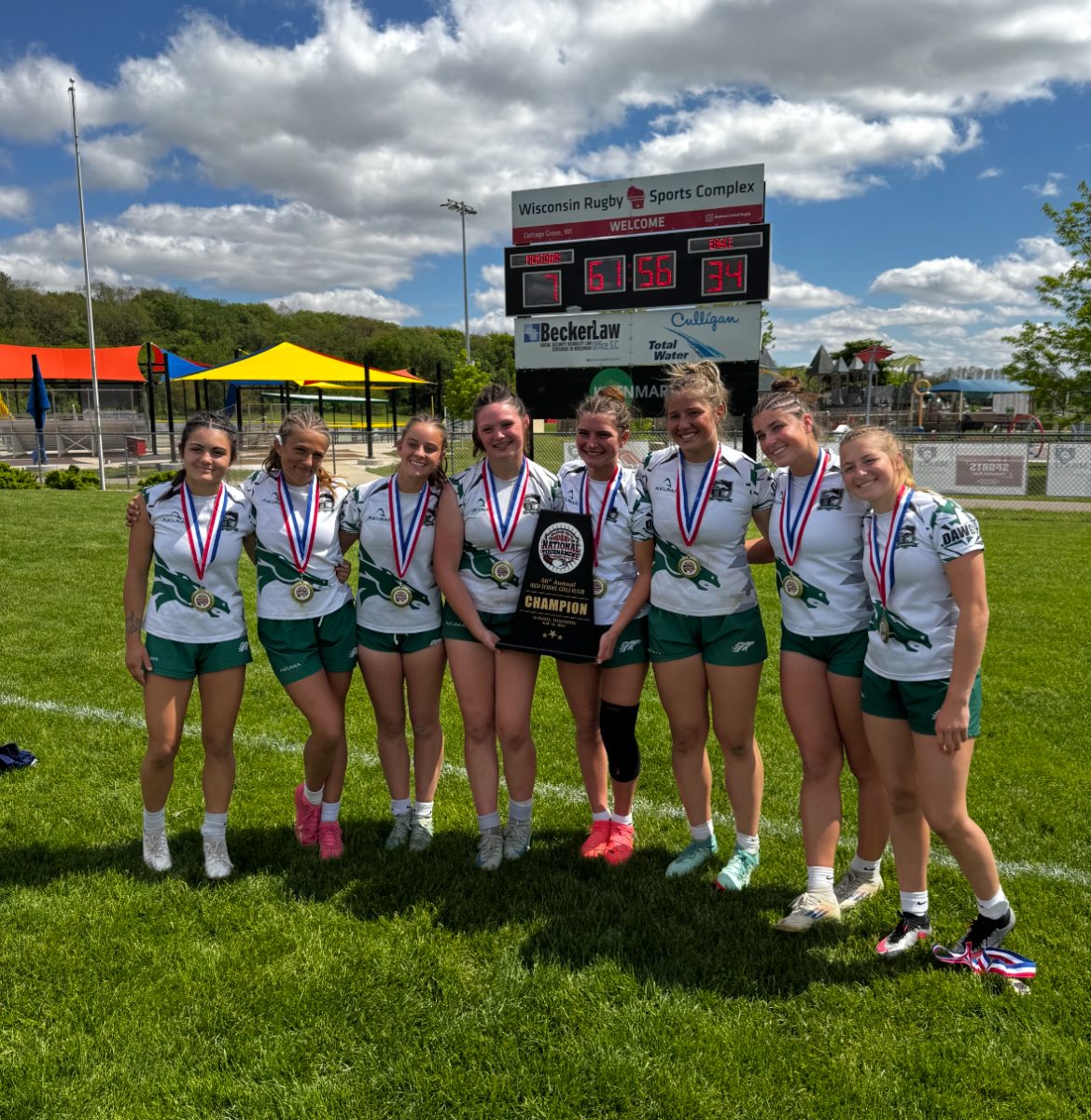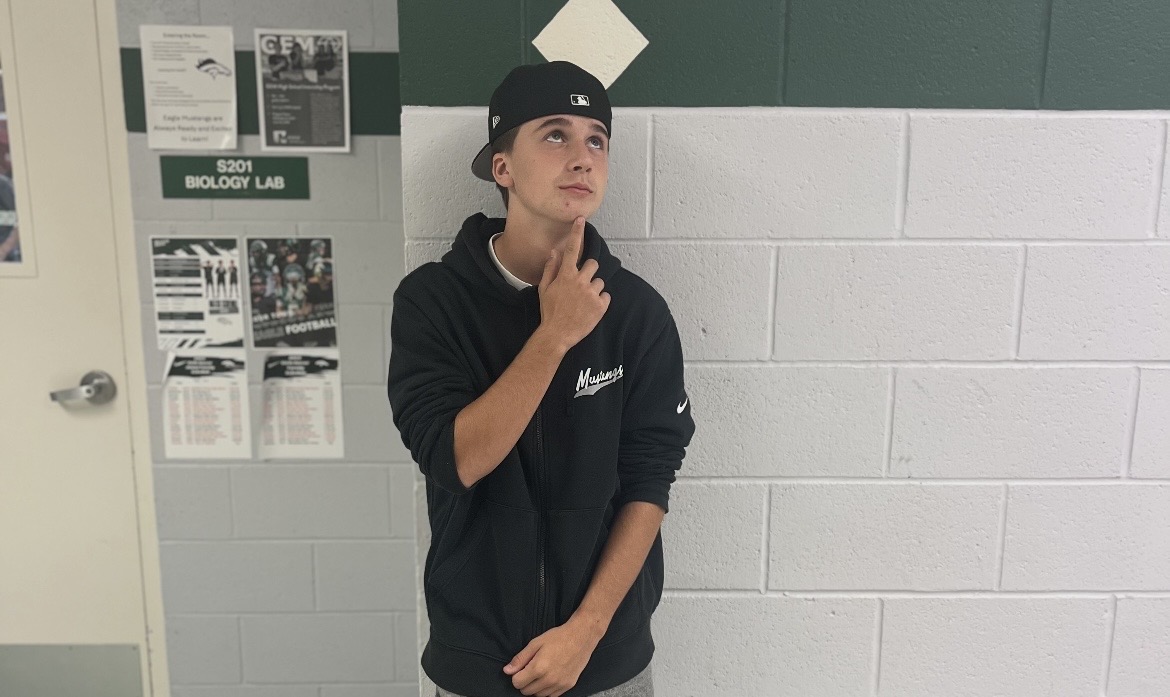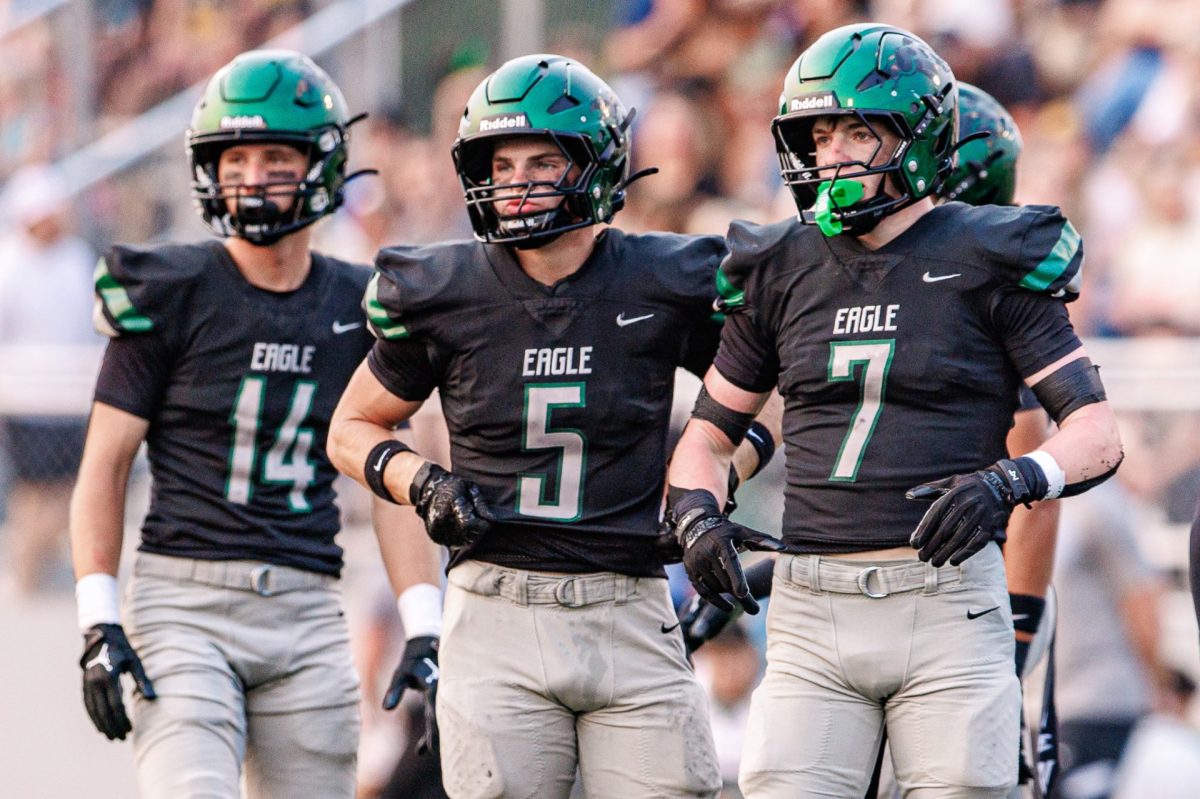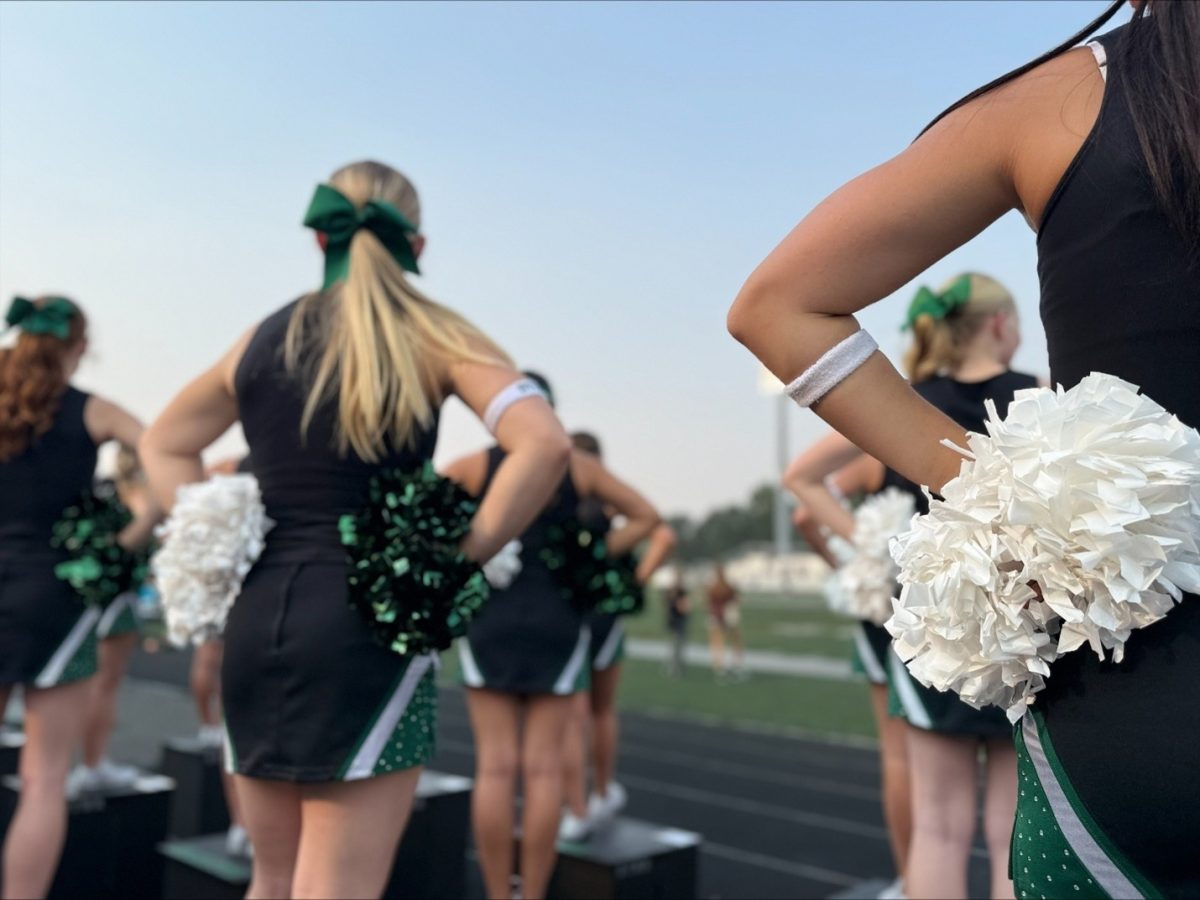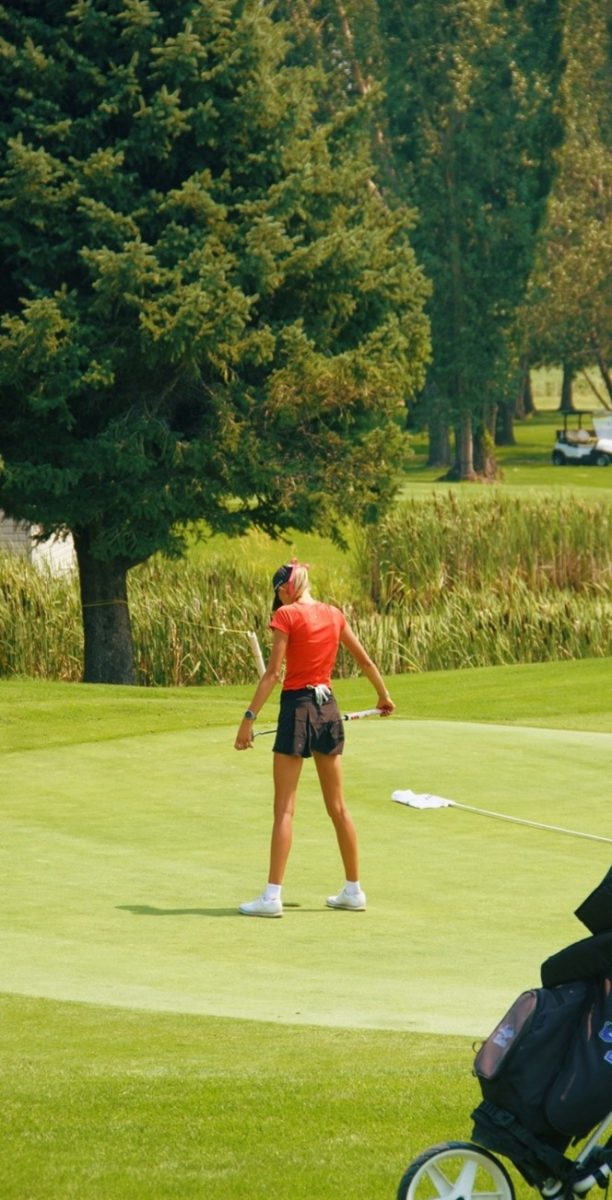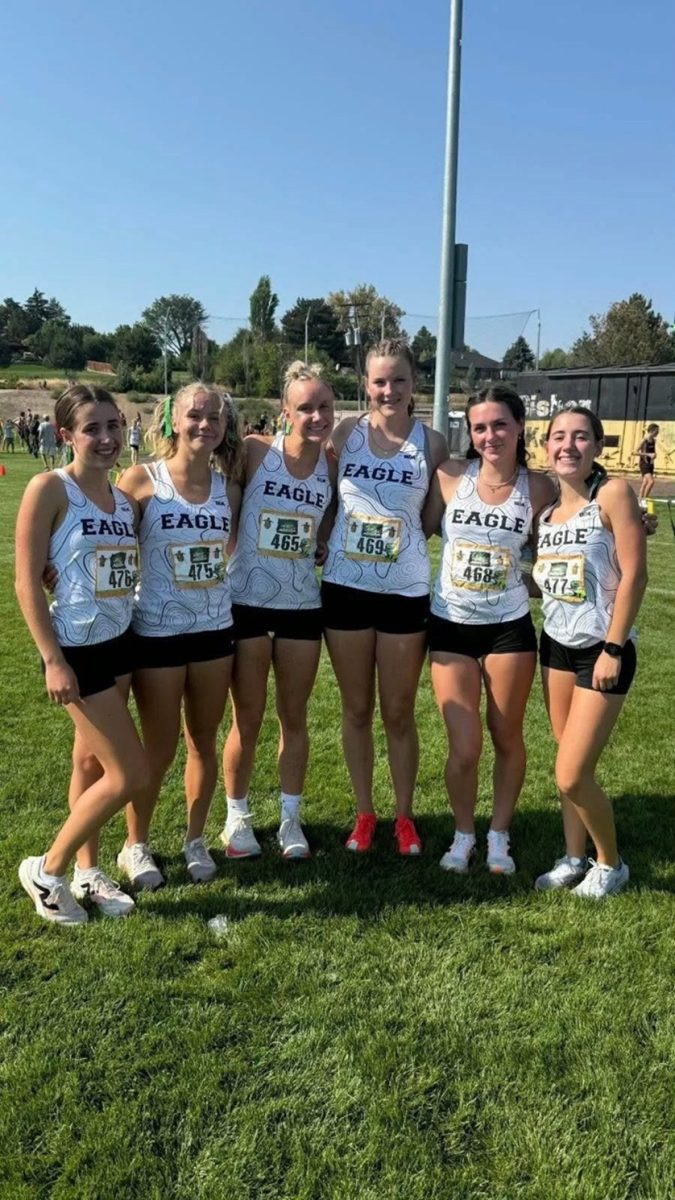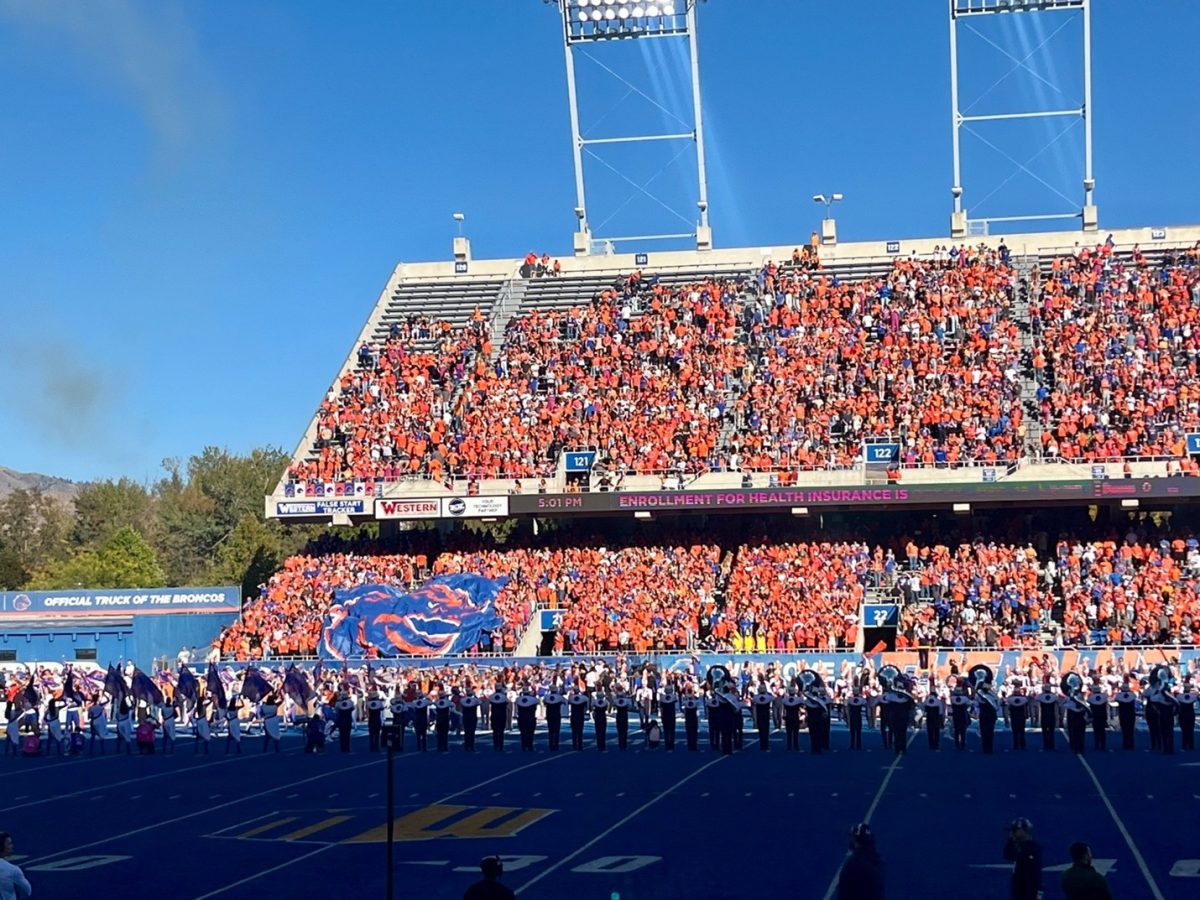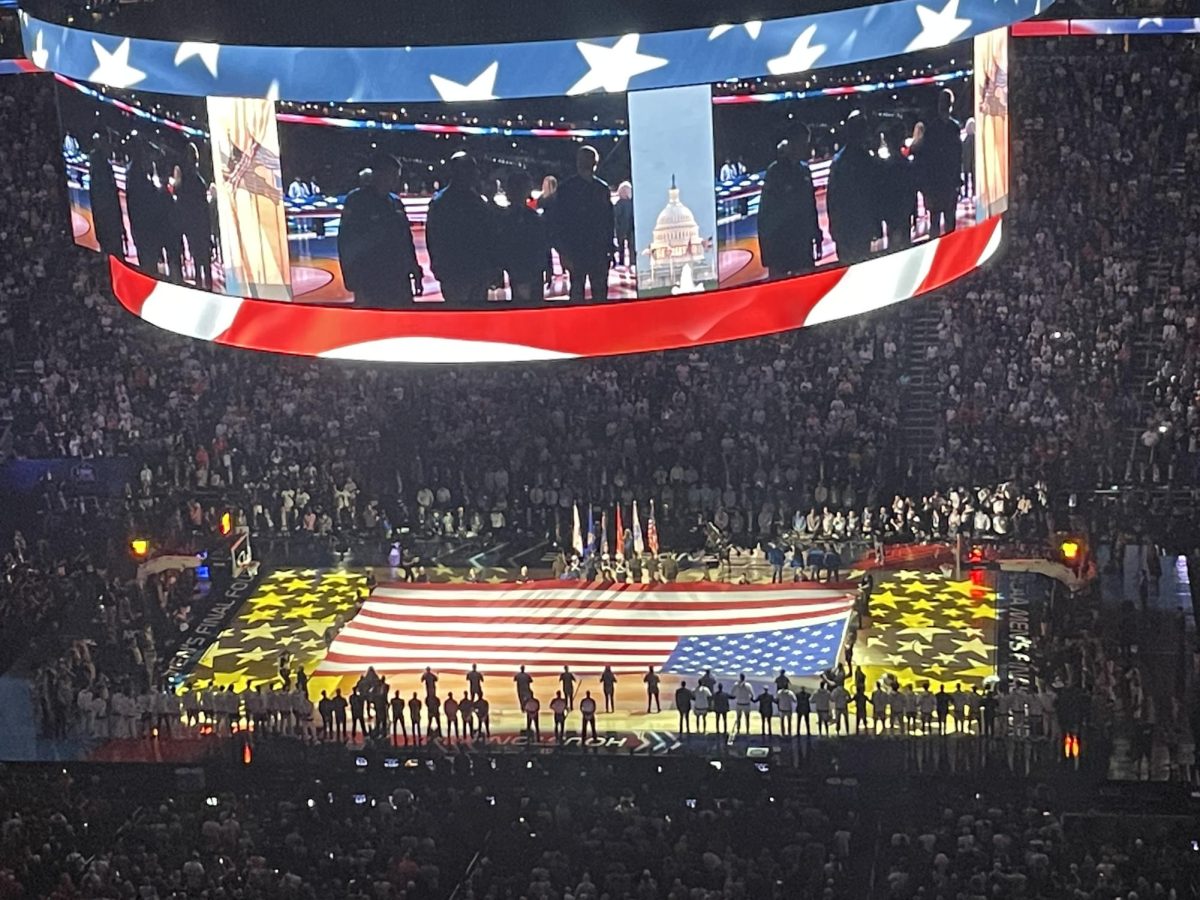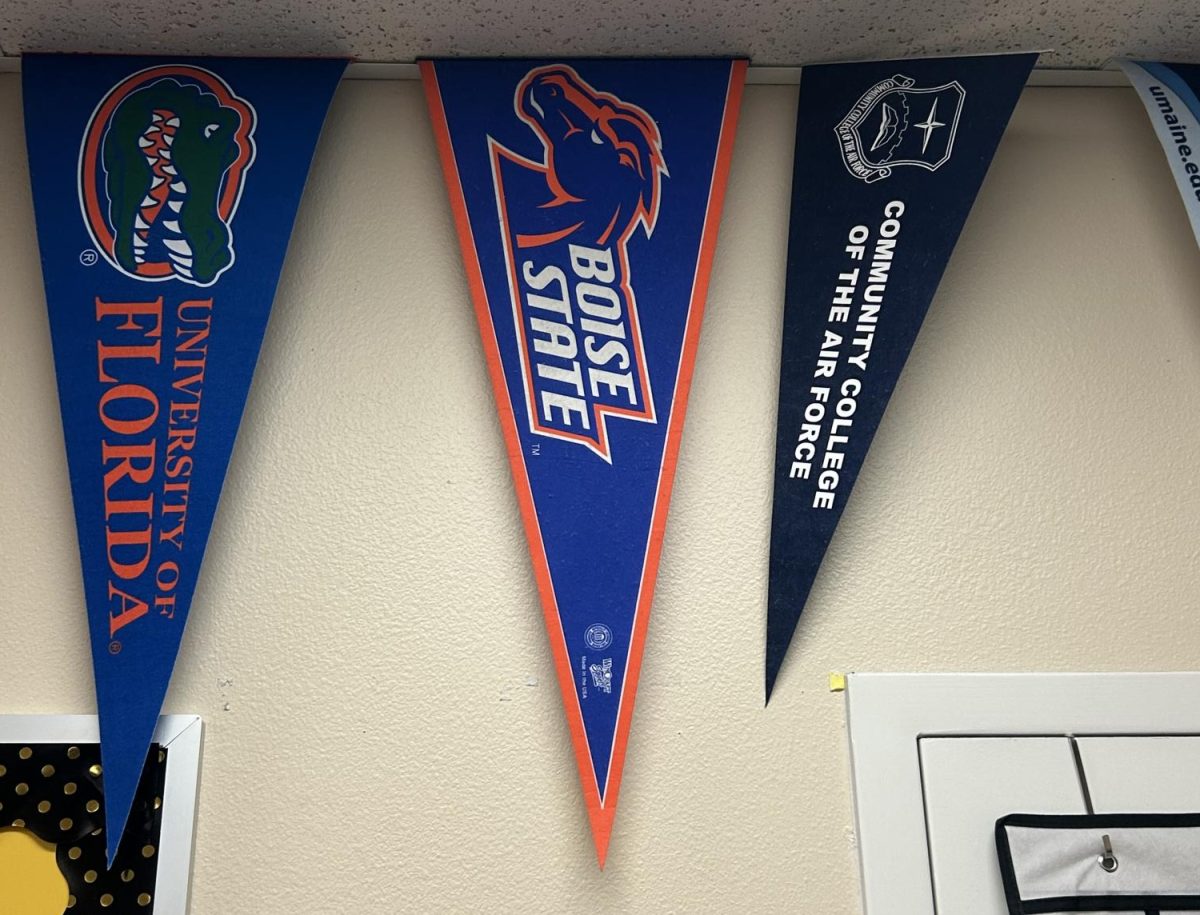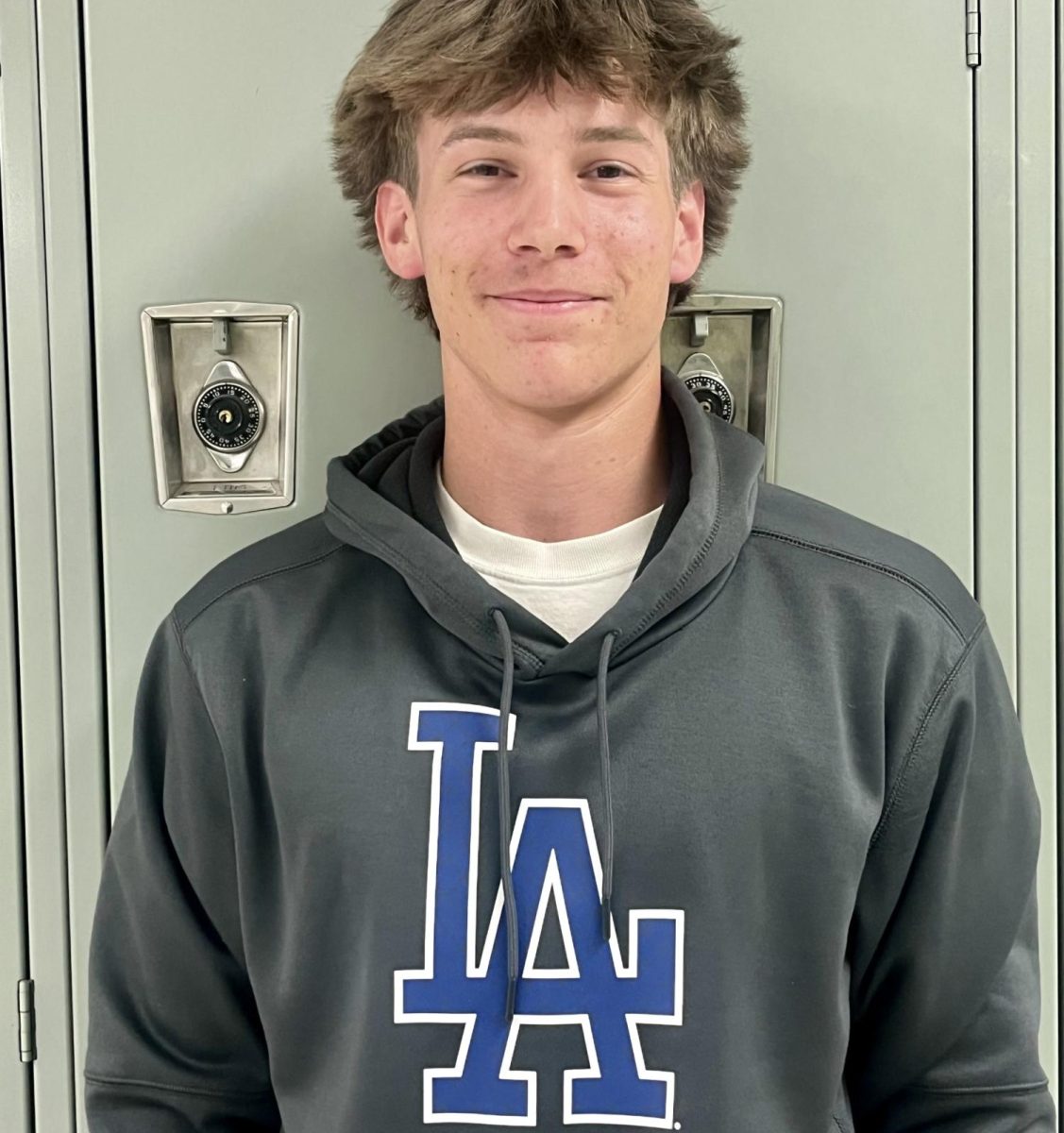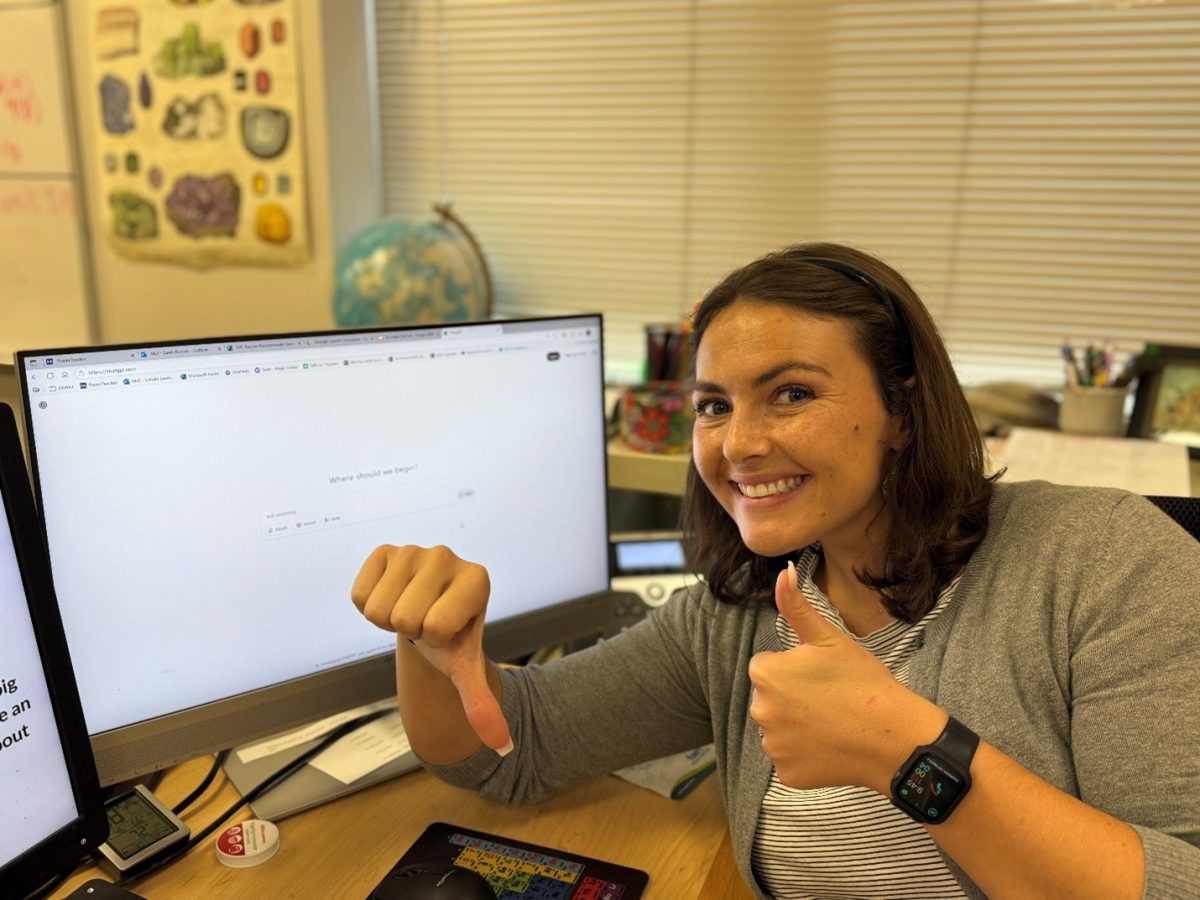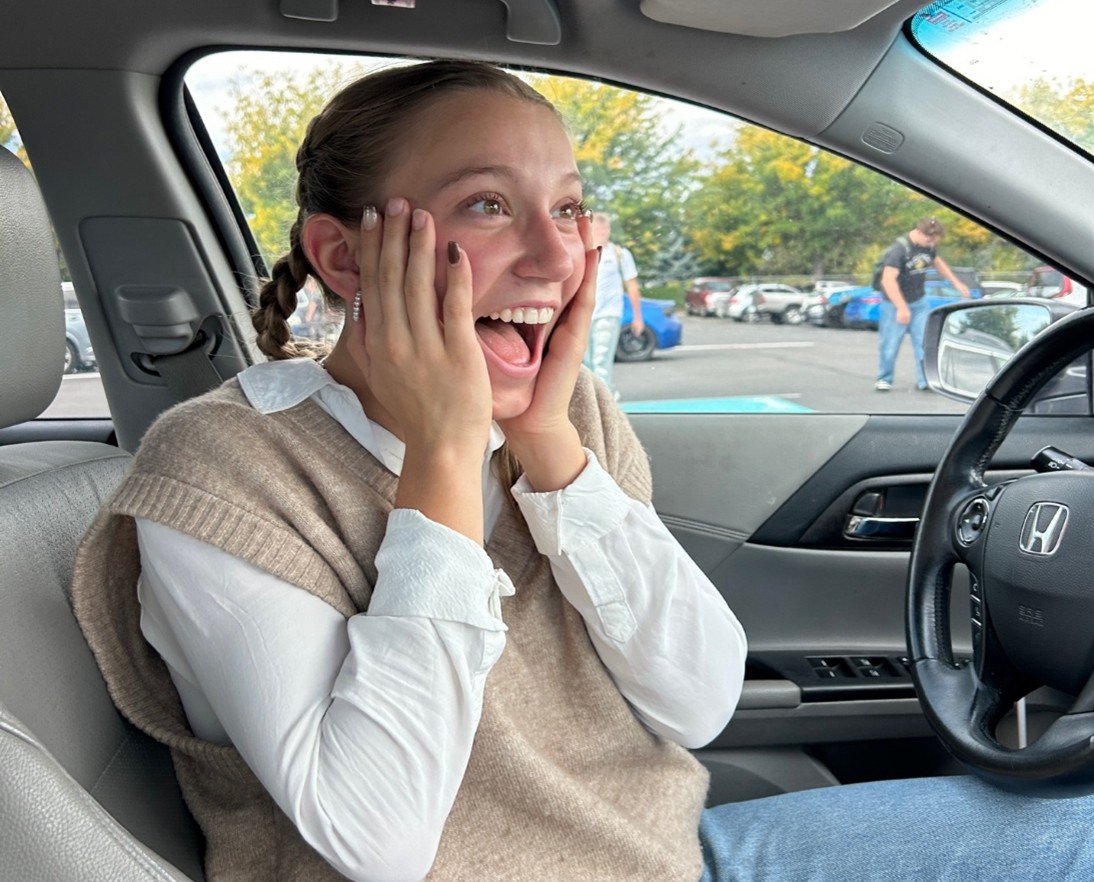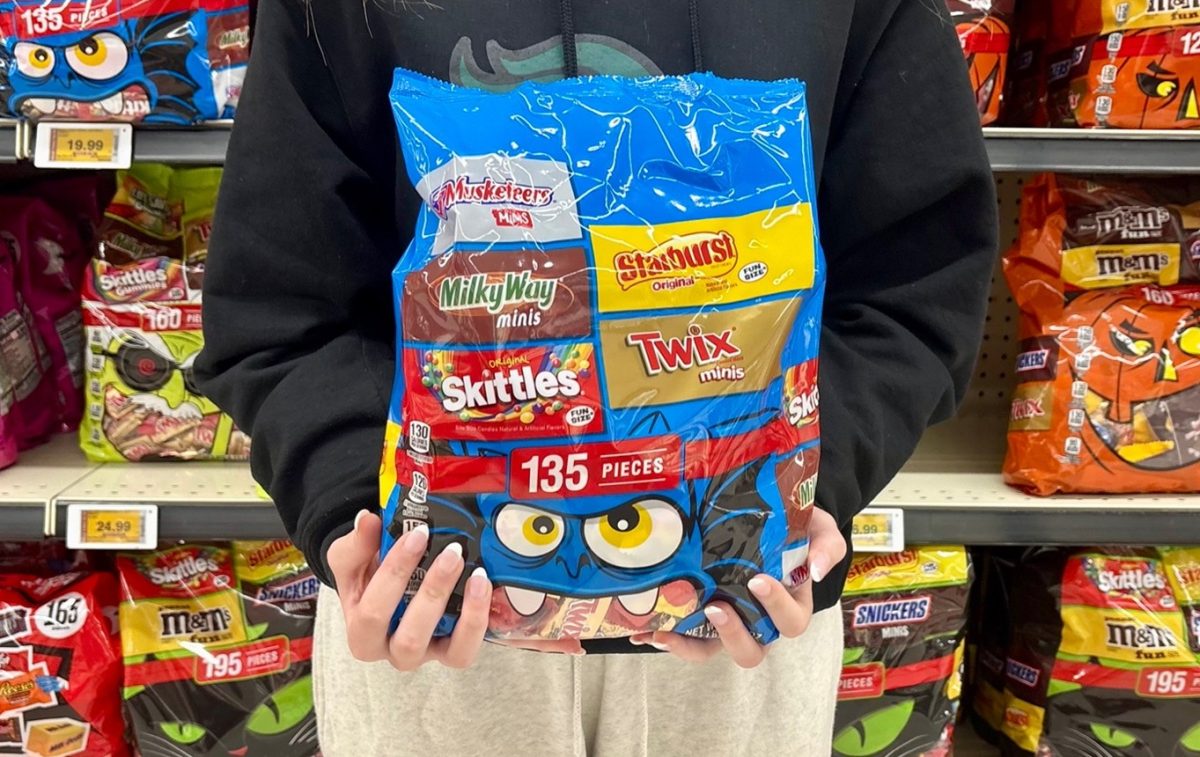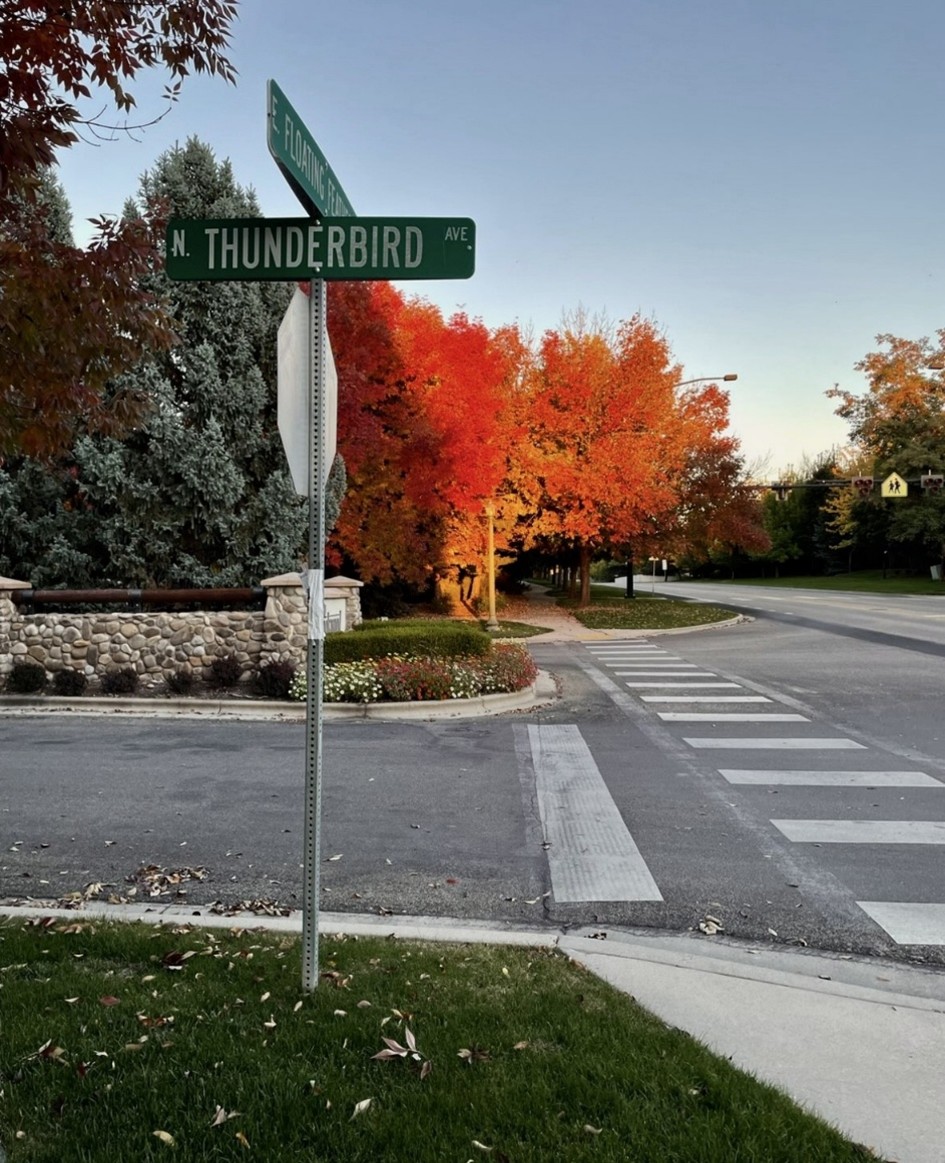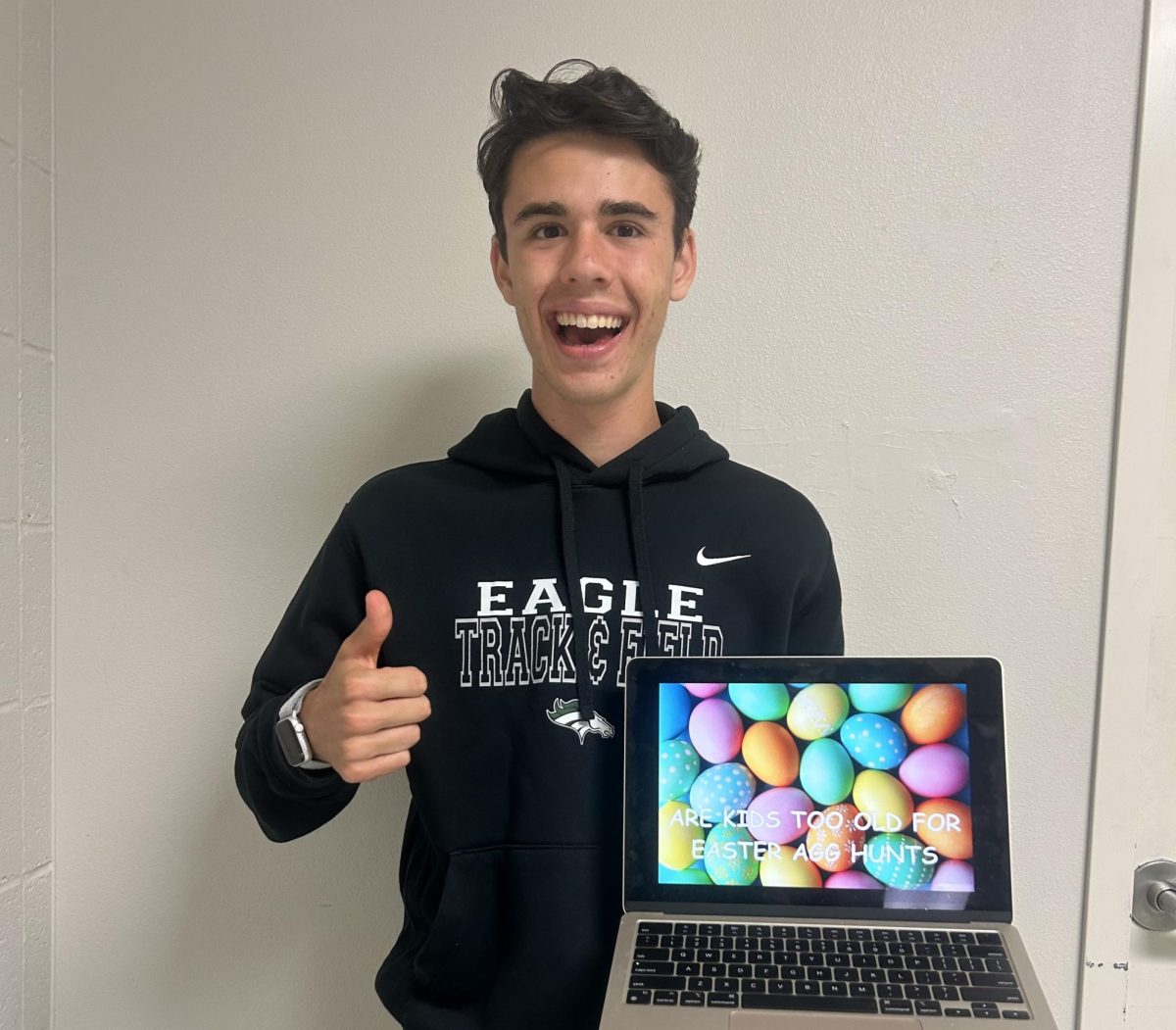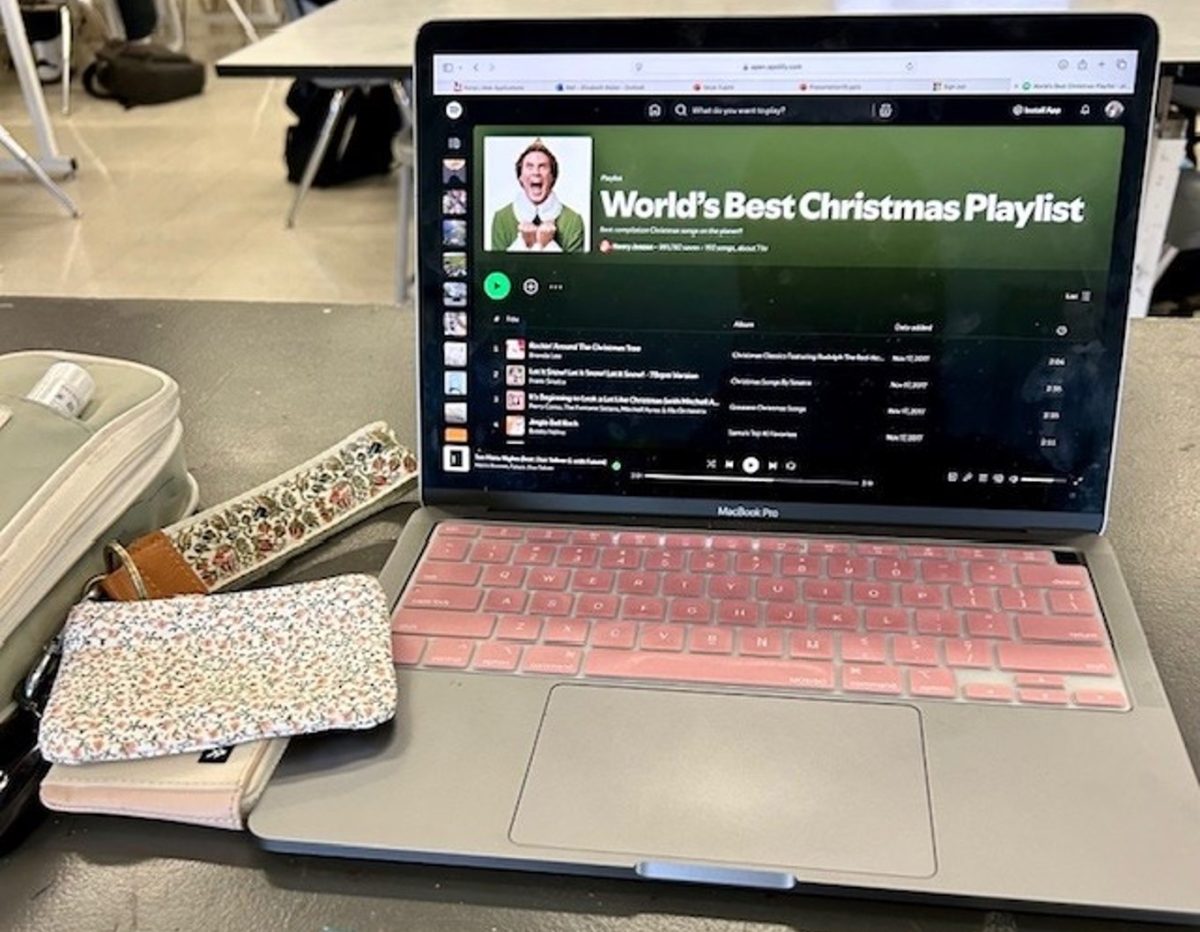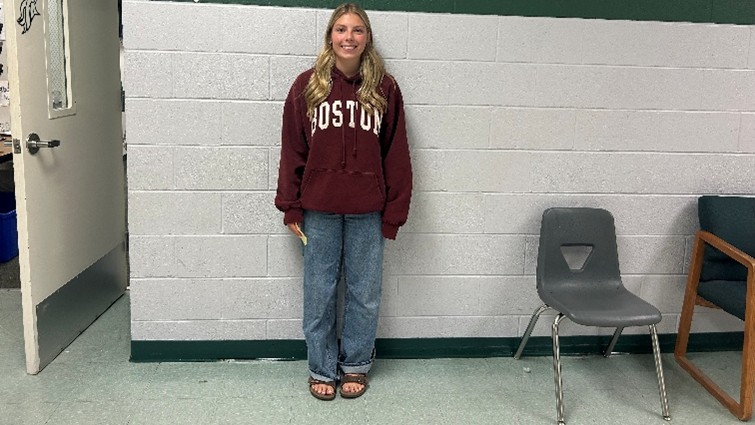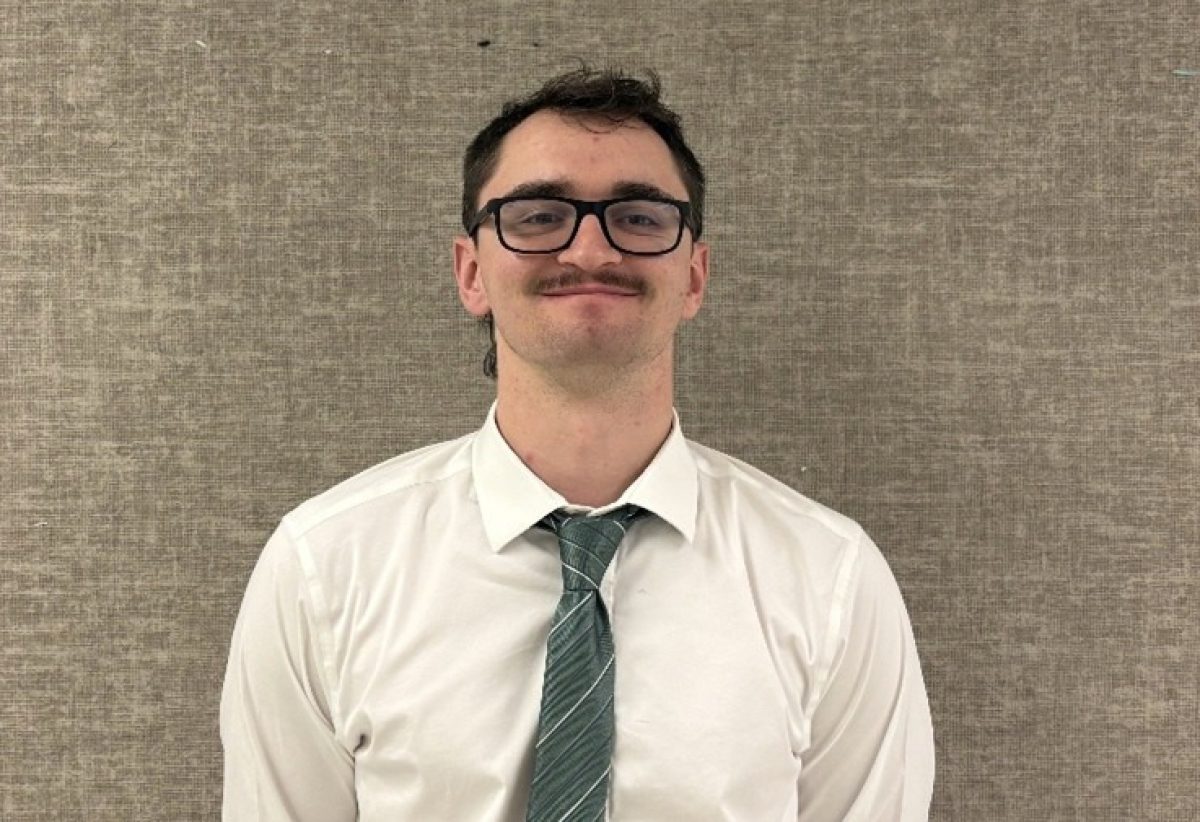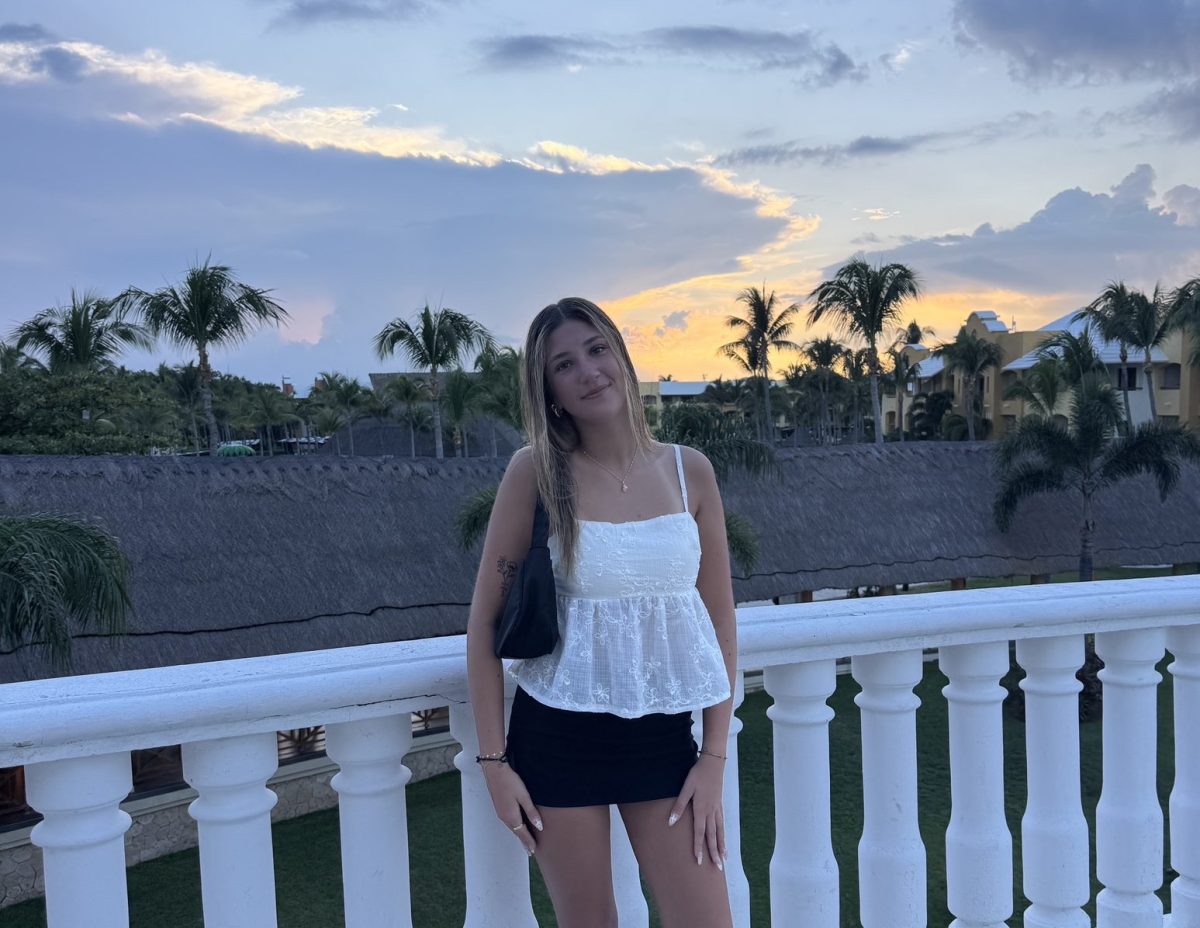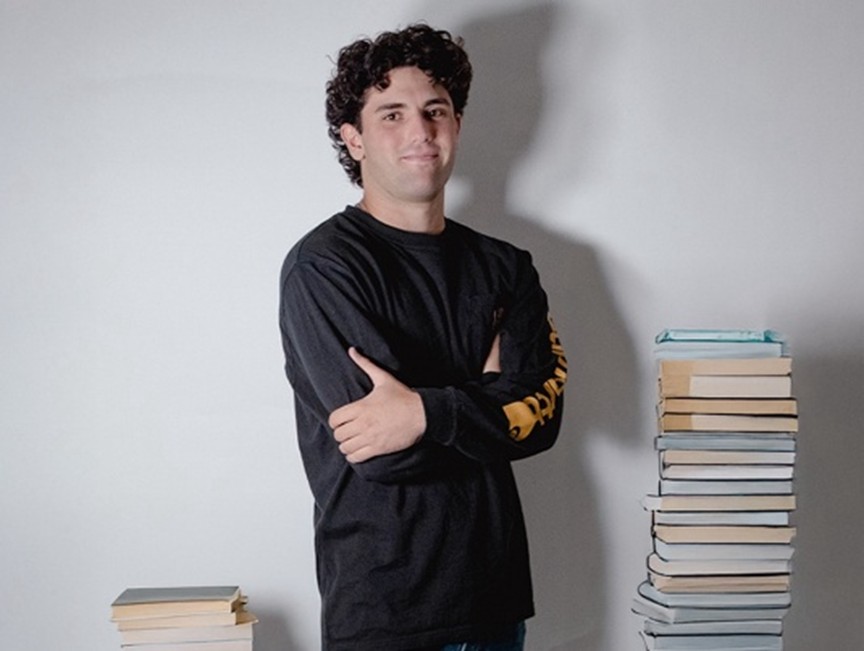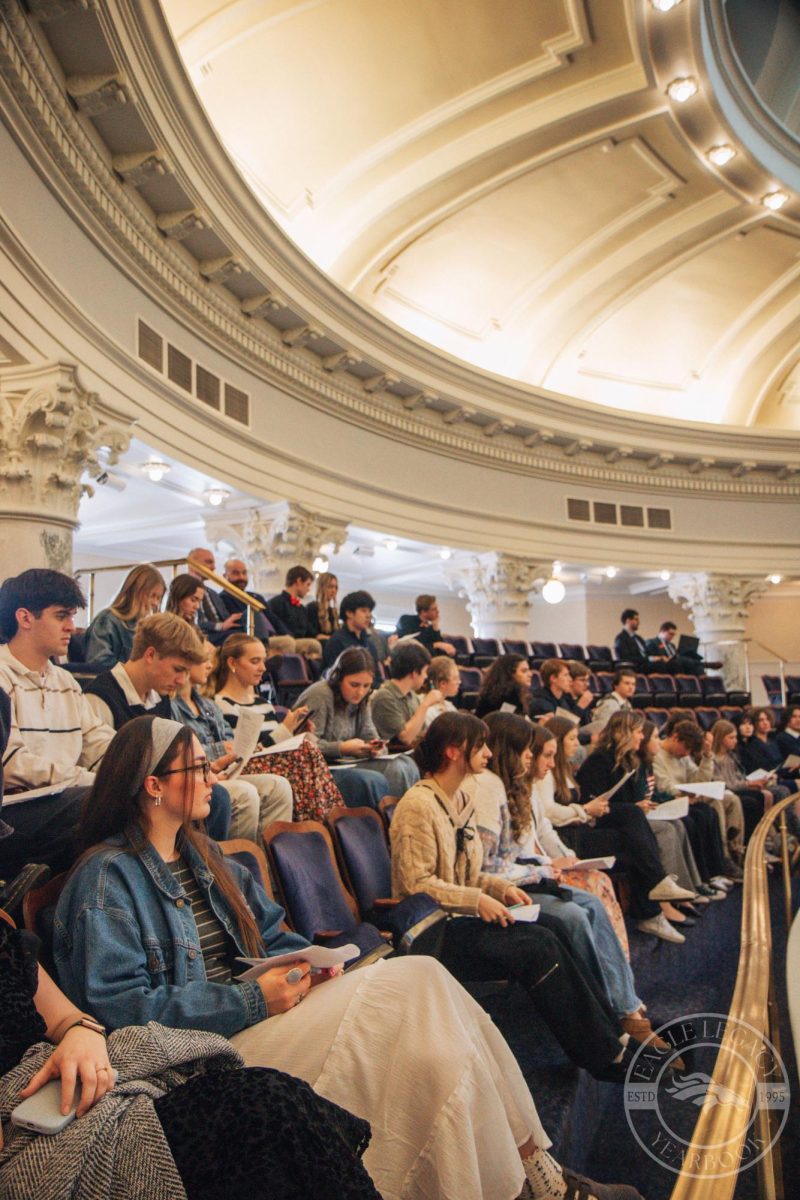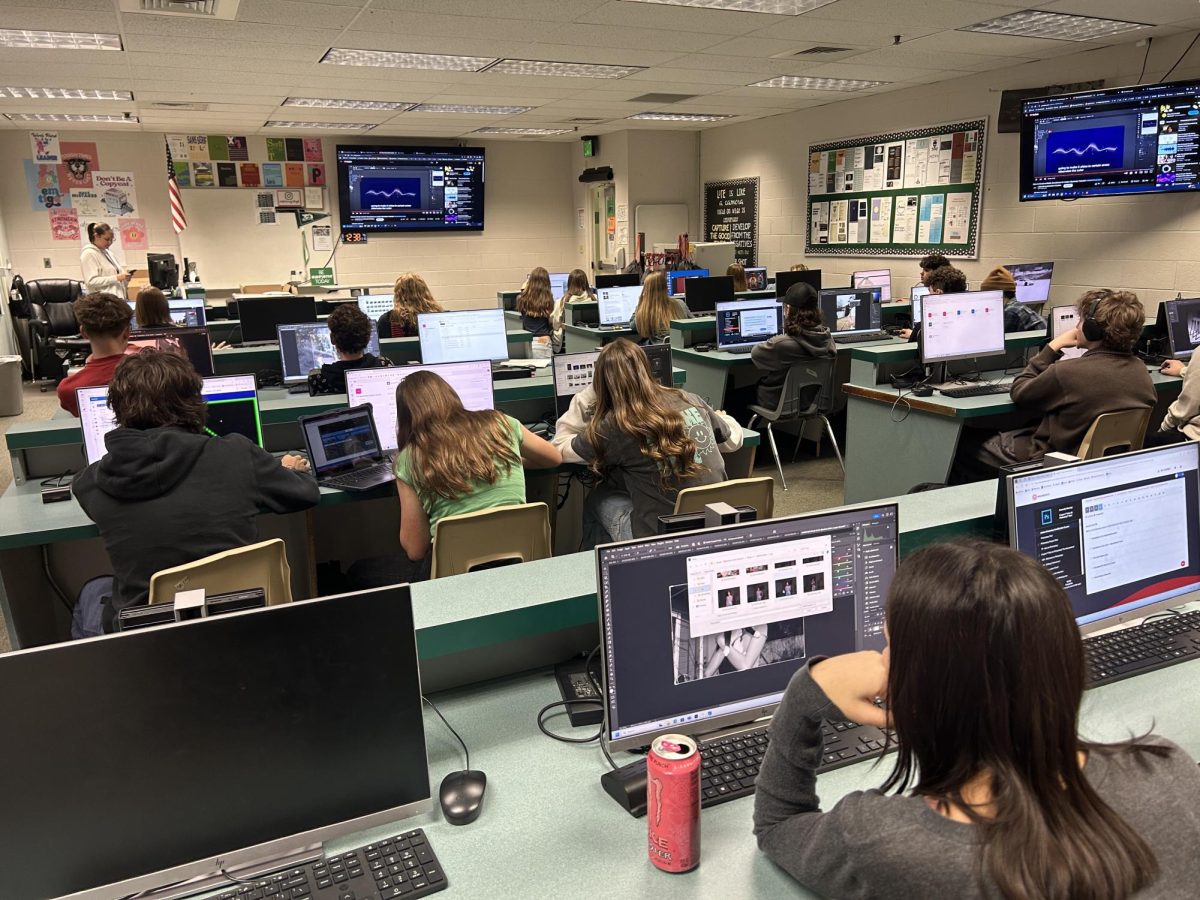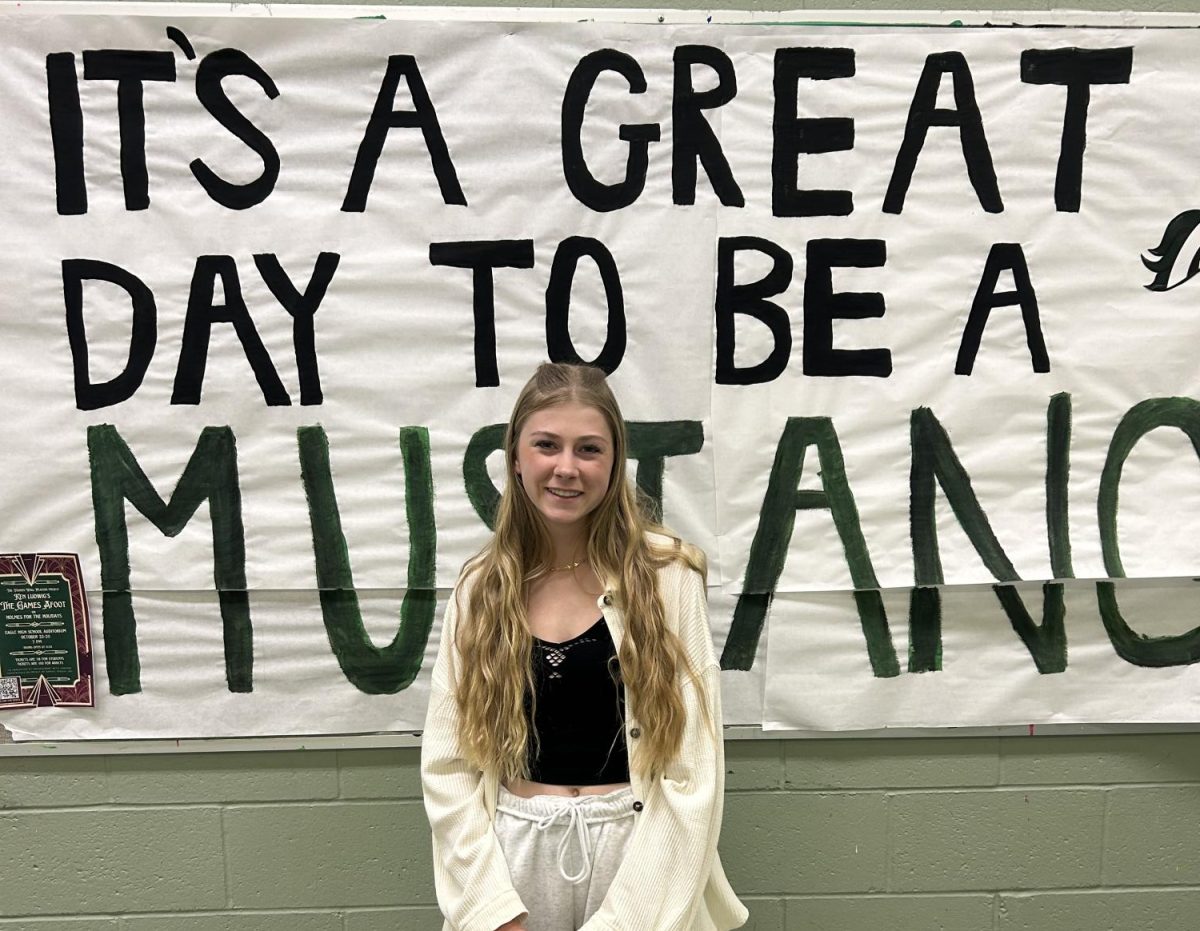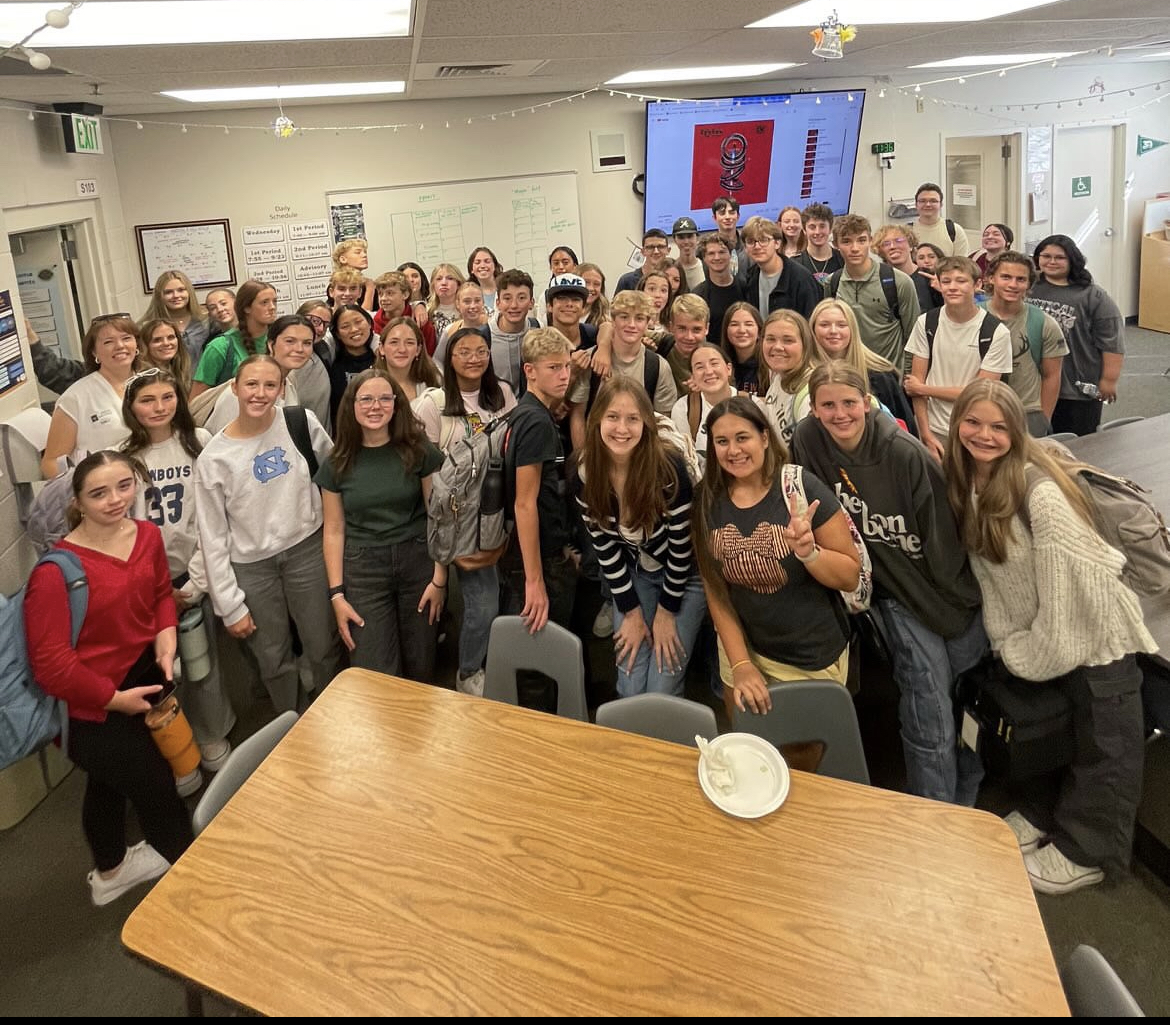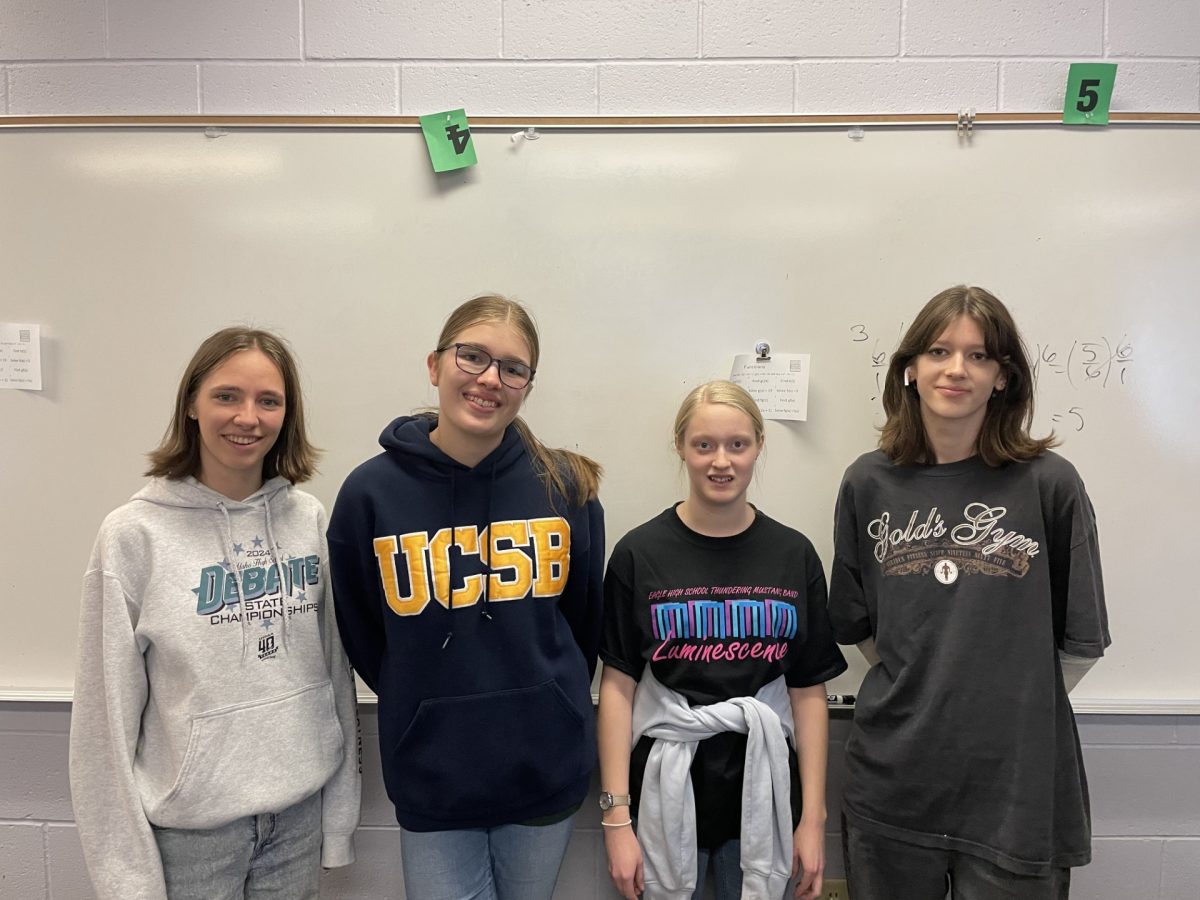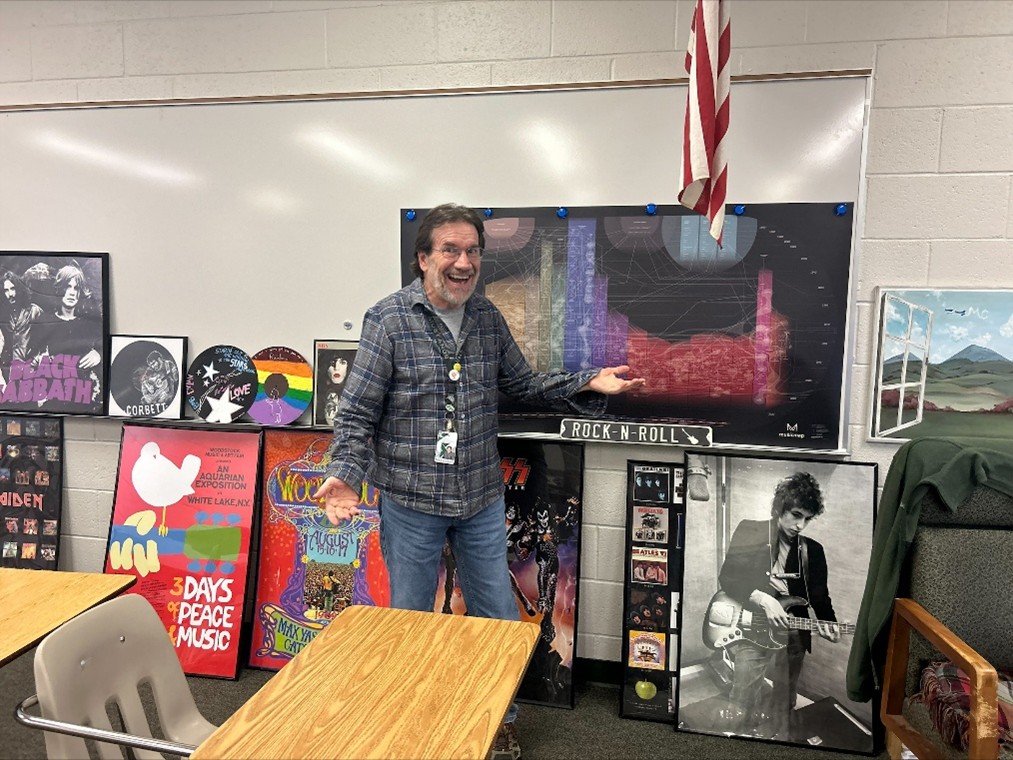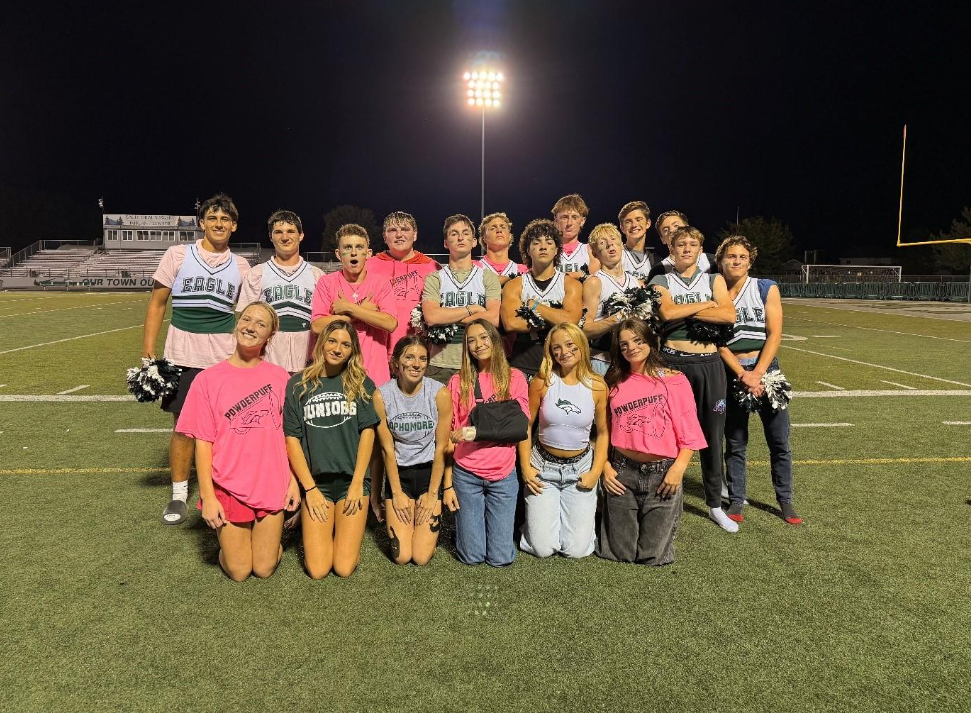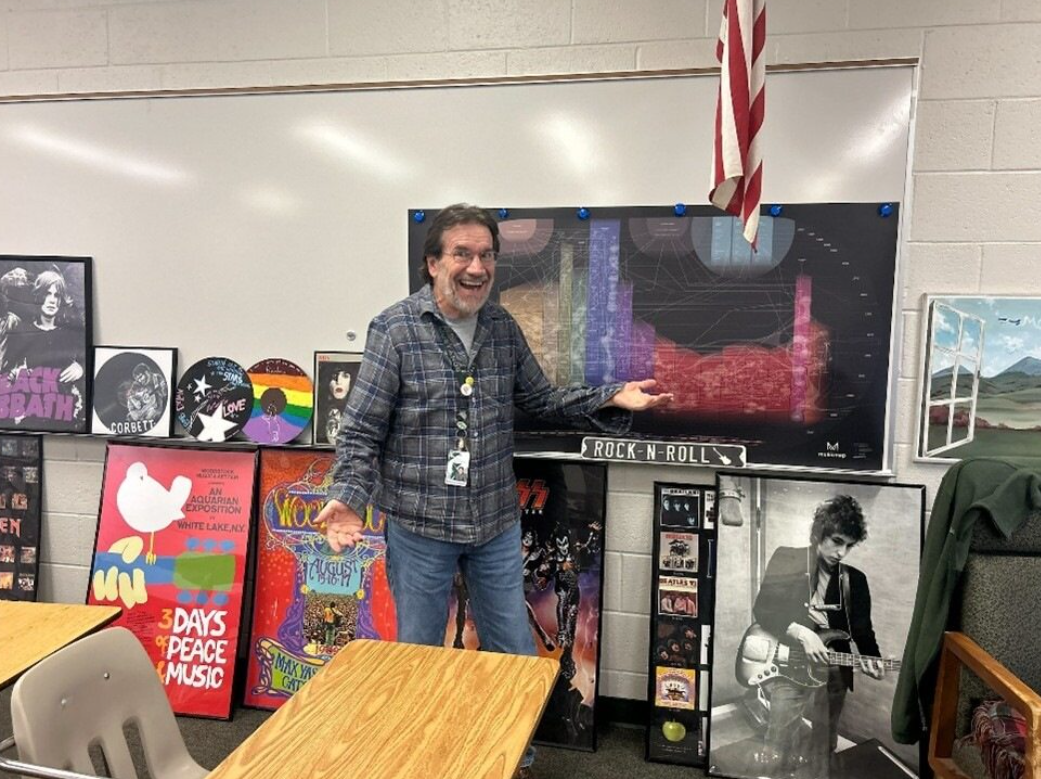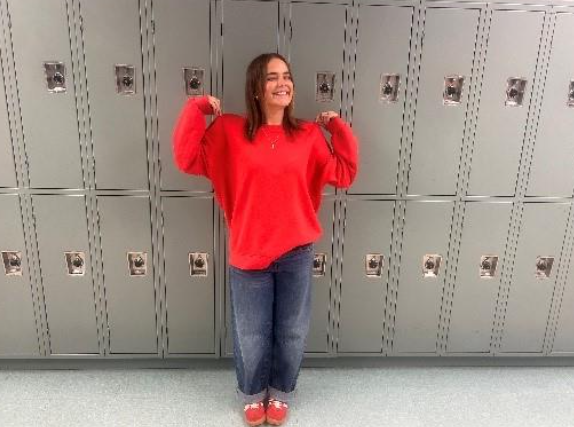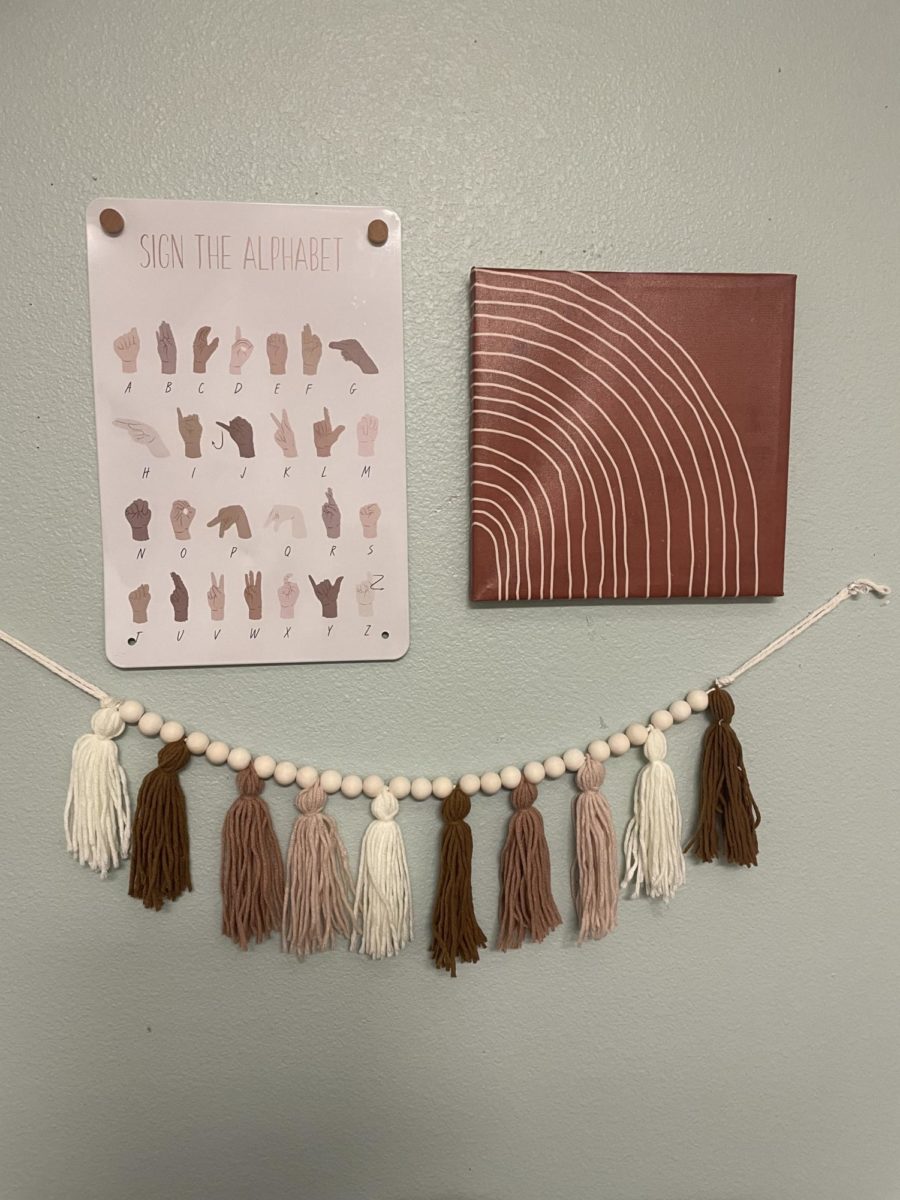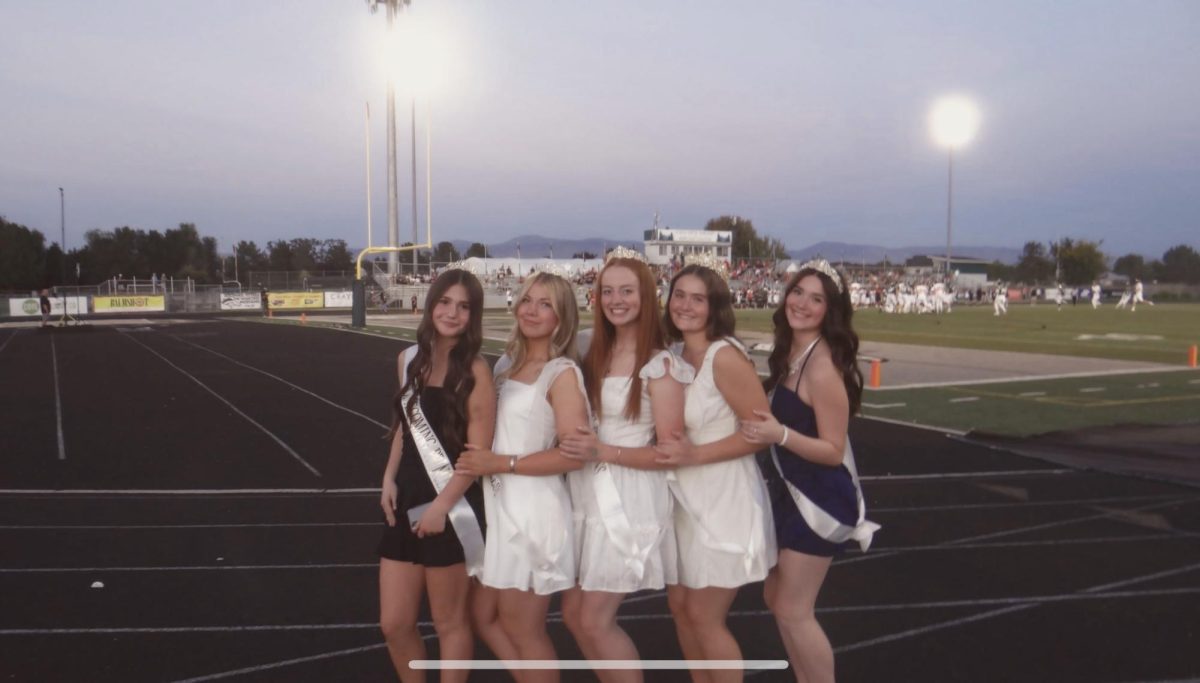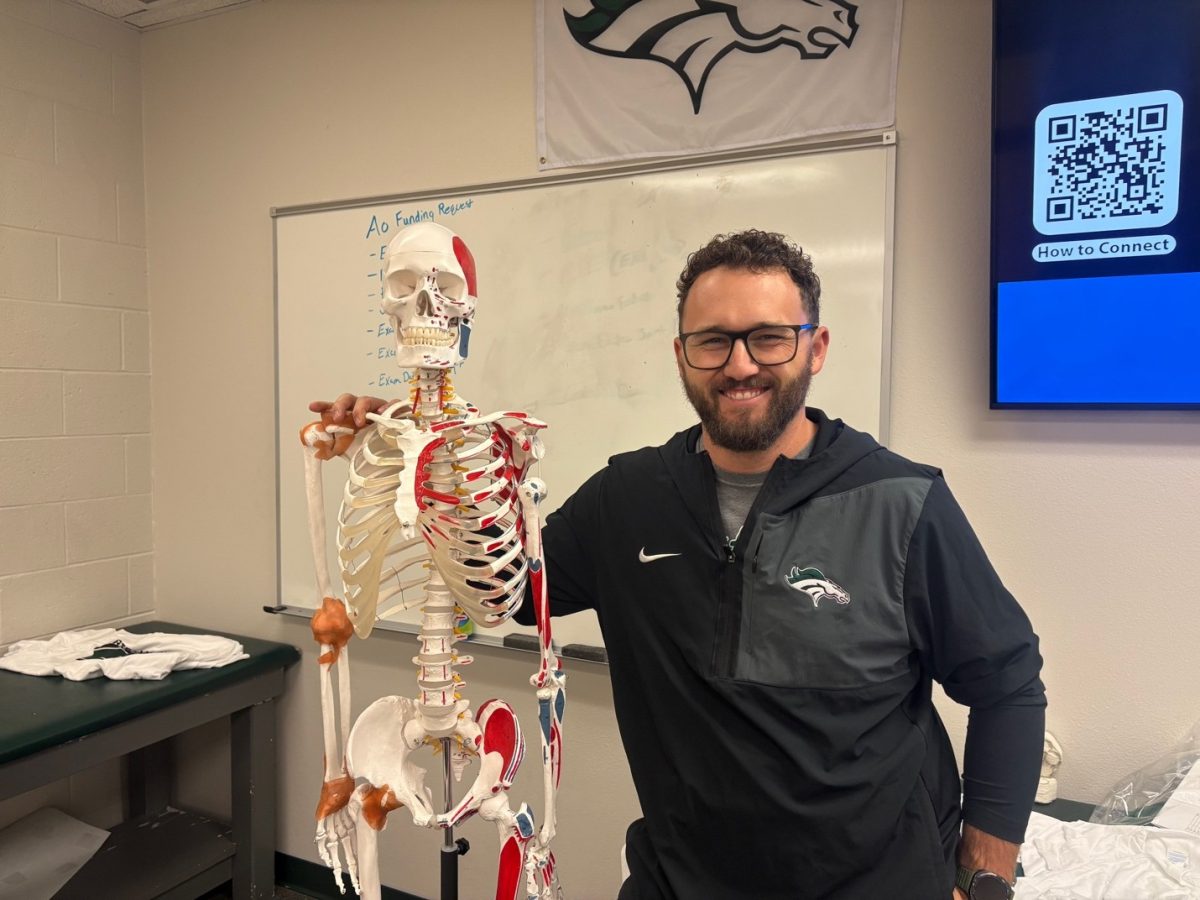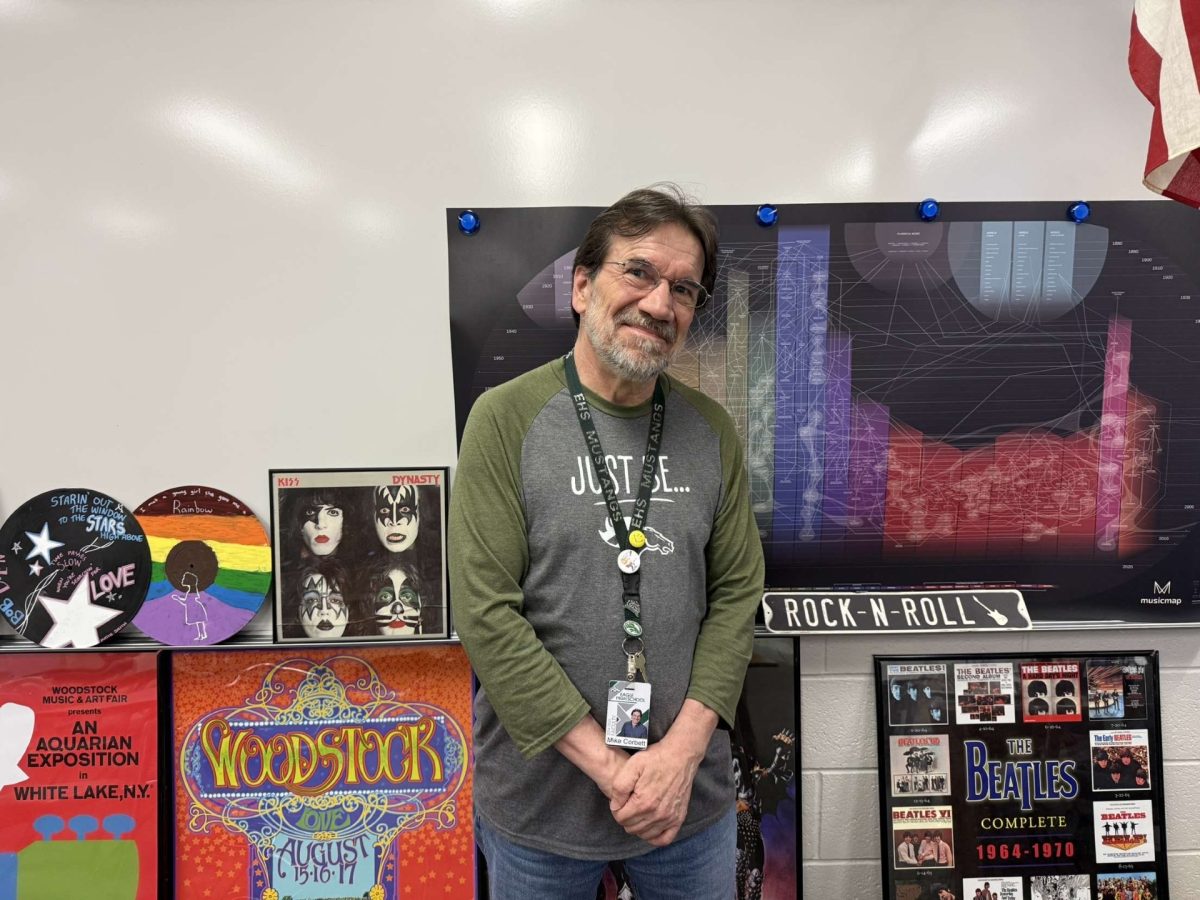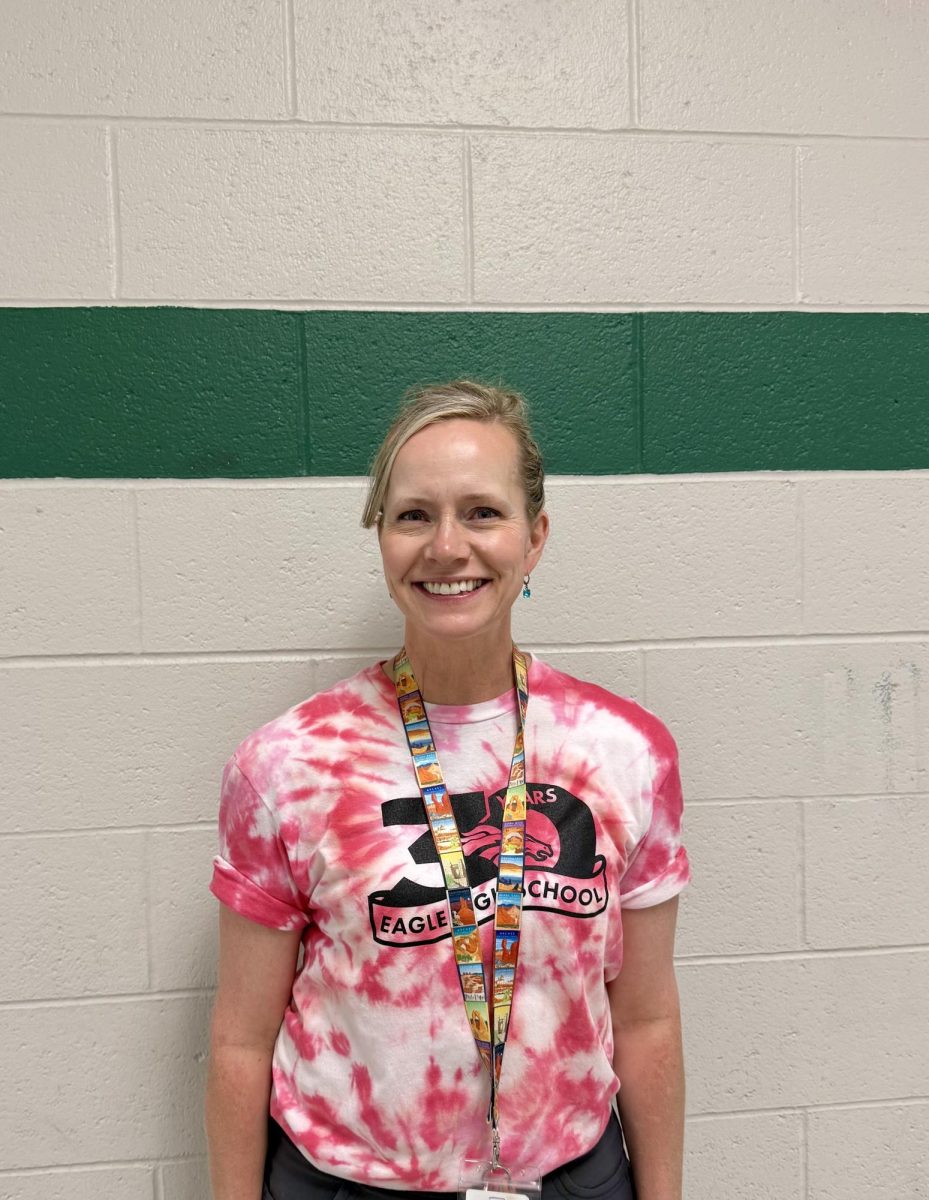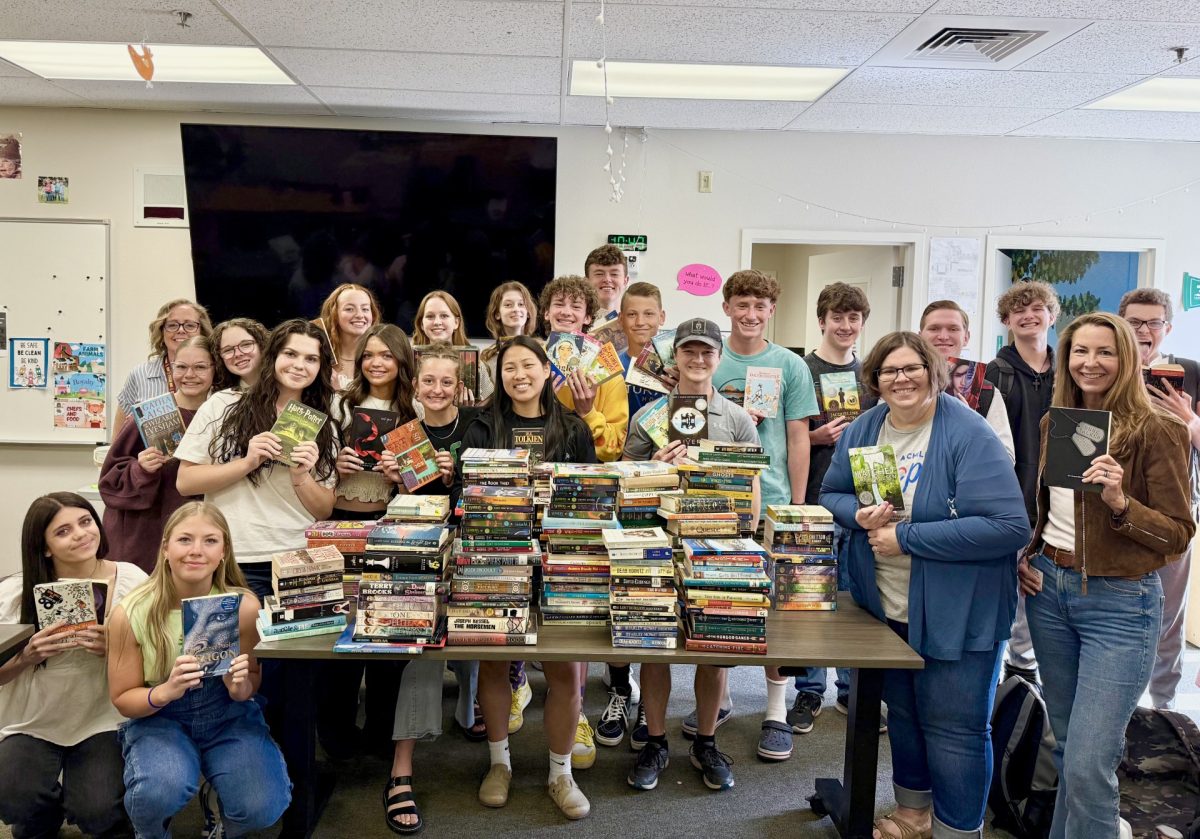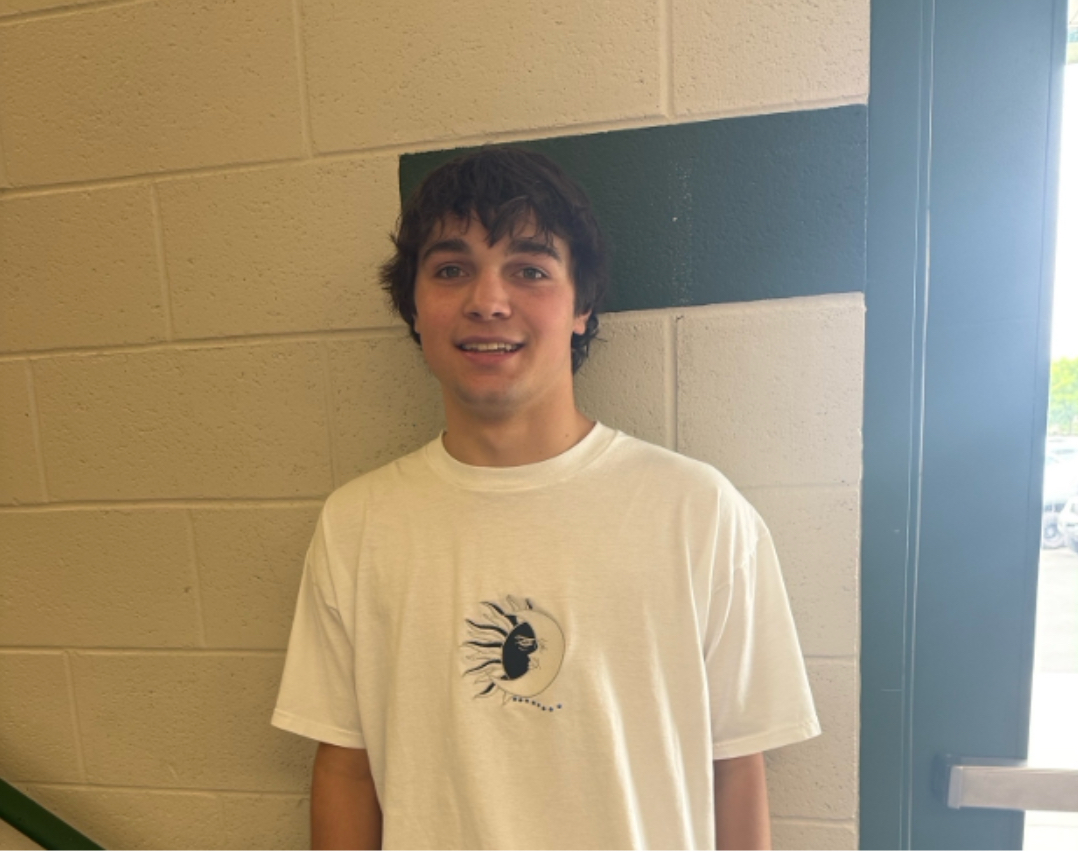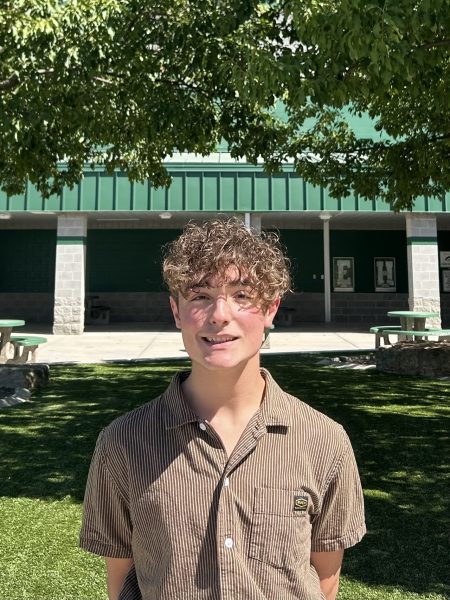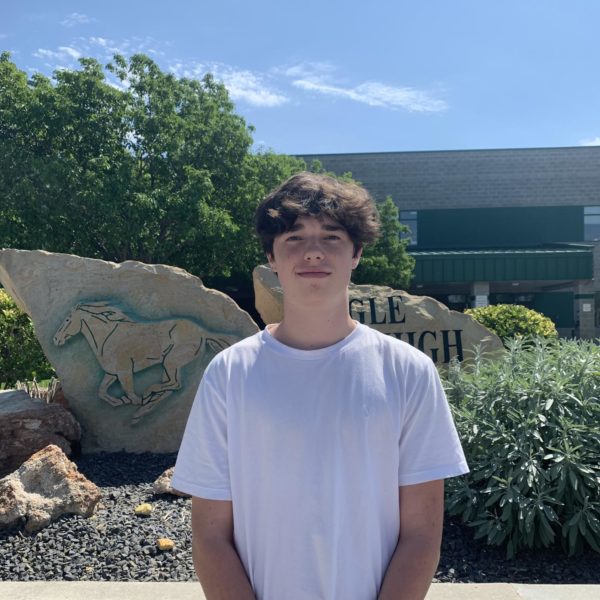Eagle High has had an influx of Deaf/hard-of-hearing students over the years, with some needing devices or services for both communicating and learning.
This year, Eagle High has introduced two new interpreters specializing in American Sign Language (ASL) to help communicate teacher’s words and assignments to a young Deaf student through their native language. Interpreter Amber Markham is one of the two new ASL Interpreters that students may find in their classes.
“I am not a teacher; I do my best to convey what the teacher is saying in the language that the student prefers,” Markham said. If a Deaf/hard-of-hearing student has a question, the interpreter may also help communicate that question to the teacher or even help communicate assignments to clear up confusion.
With many interpreters, learning ASL usually starts as a passion for the language that then turns into a job, like interpreting for News stations, conferences, classes and more. Markham had a similar journey becoming an interpreter.
“I was going back to school to be a nurse when I took my first sign language class. I was in love with the language by day three and quickly researched jobs involving ASL,” Markham said. “I found interpreting as a career choice with ASL and… I decided to change my major and went to ISU for my Bachelor’s in ASL Interpreting. I graduated in 2017 and have been an employee of West Ada since graduation.”
According to nidcd.nih.gov, About two to three out of every 1,000 children in the United States are born with a detectable level of hearing loss in one or both ears. Approximately, 37.5 million adults aged 18 and over report trouble with their hearing.
“I would encourage anyone to take ASL,” Markham said. “Even if you do not plan to become an interpreter. Direct communication is so valued in the Deaf community.”
Markham has had her fair share of comments and questions coming from Hearing individuals who are curious about her job, ASL and the Deaf community. It’s almost a given that questions may arise due to little education on Deaf/hard-of-hearing etiquette in the Hearing world.
“It is sort of a pet peeve when a hearing person says, ‘tell him/tell her’ something,” Markham said. “It’s more polite to address the Deaf/hard-of-hearing person directly and let the interpretation speak for itself instead of addressing the interpreter and having us ‘tell them.’”
There are many schools in West Ada that have ASL as a language class, but Eagle High is the only school in the district to have an active ASL Club, with many in the club having a passion for ASL much like Markham.
“I would [tell] any student looking to become an interpreter to get involved with the Deaf community outside of class. Emersion is the best way to master a language. The more you interact and use the language, the more you will pick up,” Markham said. “Language mastery in English is important as well. Remember that you are not always interpreting from English to ASL, often you interpret a Deaf person’s message from ASL to English. You are also never done learning in this field; I constantly attend workshops and trainings to improve my skills.”
According to cdhh.idaho.gov, there are over 250,000 Deaf/hard-of-hearing Idahoans, meaning that 13% of Idaho’s population needs outside accessories or help with communicating in a predominantly hearing world.
“If you work at a job where you communicate with the public often like Dutch or Walmart or all the other places, chances are that a Deaf person might come to your business,” Markham said. “If you can sign, you make access to that establishment easier for any Deaf/hard-of-hearing person.”
Communication, language and learning are all key things that everyone should have access to regardless of their hearing ability; having interpreters like Markham helping Deaf/hard-of-hearing students around the district is helping every student achieve the greatness and level of education that they deserve.

